NEWS & VIEWS FROM THE SOCIAL GOOD SPHERE
Read about the who’s, the what’s, and the where’s from the best SGOs. Discover projects, the people behind the projects, and the organizations behind the people.


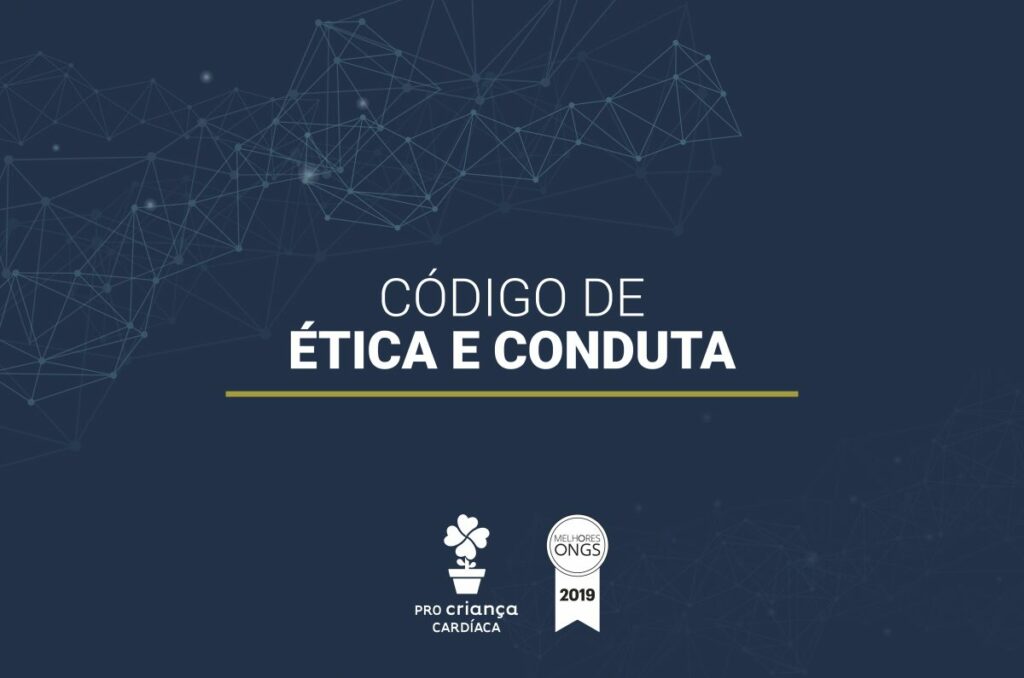
Pro Criança Cardiac launches its Code of Ethics and Conduct
30/04/2024
Standard in the corporate world and increasingly necessary in the third sector, guidelines that govern internal and external relations with Pro Criança were developed in partnership with the renowned Ulhôa Canto Advogados Office.
Ethics, honesty, integrity, reliability, respect, transparency and coherence have always been very dear values for society as a whole, essential for the unblemished reputation of companies and, in recent decades, also for the Third Sector in the country, which is growing in leaps and bounds. wide. According to the Institute of Applied Economic Research (Ipea), there are more than 820,000 Civil Society Organizations active in Brazil.
One of them is Pro Criança Cardiac, which launches its Code of Ethics and Conduct on February 19th, next Wednesday, at a closed event. After the launch, there will be training aimed at the institution’s employees, suppliers and service providers in the auditorium of the Botafogo Medical Center (Rua Dona Mariana, 143). The opening will be given by Mitzy Cremona Conde, lawyer and Executive Director of Pro Criança Cardiac, and the training will be conducted by the Institution’s volunteer lawyer, Fernanda Freitas, partner at the Ulhôa Canto Advogados Office, a partner of Pro Criança for 11 years.
“Pro Criança Cardiac’s mission is to offer the best in medicine for children, with care guided by rigorous standards of quality and professional ethics. We also want to be pioneers in excellence in the implementation, training and compliance with compliance standards and guidelines, thus becoming a reference in the Third Sector”, highlights Dr. Rosa Celia Pimentel Barbosa, founder and president of the institution.
Pro Criança Cardiac’s Code of Ethics and Conduct was prepared by lawyers Mitzy Cremona Conde and Fernanda Freitas and is governed by the following fundamental principles: Strict compliance with the law, Respect for work and workers, Environmental responsibility and Rejection of corruption.
The guidelines contained therein must be observed by the institution and all its collaborators – employees and third parties acting on behalf of Pro Criança. The Code will be widely disseminated among associates, directors, advisors, administrators, doctors, partners, donors, employees, volunteers, service providers, suppliers, representatives, contractors, donors, sponsors and third parties in general who, in some way, collaborate to the development of the organization.
“It is an important step to enable and preserve our mission, vision and values, guiding and serving as a reference to all employees for professional and personal performance that encompasses the highest ethical standards, honesty and integrity”, adds Dr. Rosa Celia.
Pro Criança Cardiac launches its Code of Ethics and Conduct

Founder and president of Pro Criança is among the 50 authors of “The post-pandemic world”
30/04/2024
The founder of Pro Criança Cardiac, Dr. Rosa Celia, is among the 50 authors of the book The Post-Pandemia World, which has just been released by Nova Fronteira and was organized by lawyer José Roberto de Castro Neves. Personalities that are references in their fields participated in the work, such as actress Fernanda Torres, journalist and presenter Pedro Bial and businessman Roberto Medina. Copyright will be fully transferred to Pro Criança Cardiac.
The Post-Pandemic World brings reflections on the before and after Covid-19 as a determining episode in this century and debates the consequences of recent political, health and economic actions. What should we expect for our future and the future of the next generations? A drastic transformation in everything human? Or just the return of the world as it always was?
In the book, personalities give their opinion on the main spheres of human action, taking into account each of their complexities and dilemmas: cardiologist Rosa Célia wrote about the importance of social projects and the interface of hers, Pro Criança Cardiac, with the own life story. The importance of the third sector, reinforced in times of pandemic, is also in Dr. Rosa’s text, who hopes that, from everything that is being experienced, there will be some learning for the future.
Among her considerations is also the role of medical institutions beyond caring for patients infected by the coronavirus. For her, part of worrying about those who are at home and suffering the effects of isolation, who are without basic goods, without housing, for example.
Dr. Rosa believes that the pandemic brought about the mobilization of people and institutions, making everyone more generous, whether in the form of partnerships or individually. She saw this happen up close at Pro Criança and the number of donations increased, despite the difficulties.
“I have great hope that these changes in trajectory will remain, so that more and more people will benefit”, wrote Dr. Rosa, and also brought to reflection the words of businessman Joey Reiman, which, for her, should be valid for life : “Fierce competition is not sustainable. Compassion is. In the decades to come, companies will focus on the business of life and work for the biggest customer of all: humanity.”
Founder and president of Pro Criança is among the 50 authors of “The post-pandemic world”
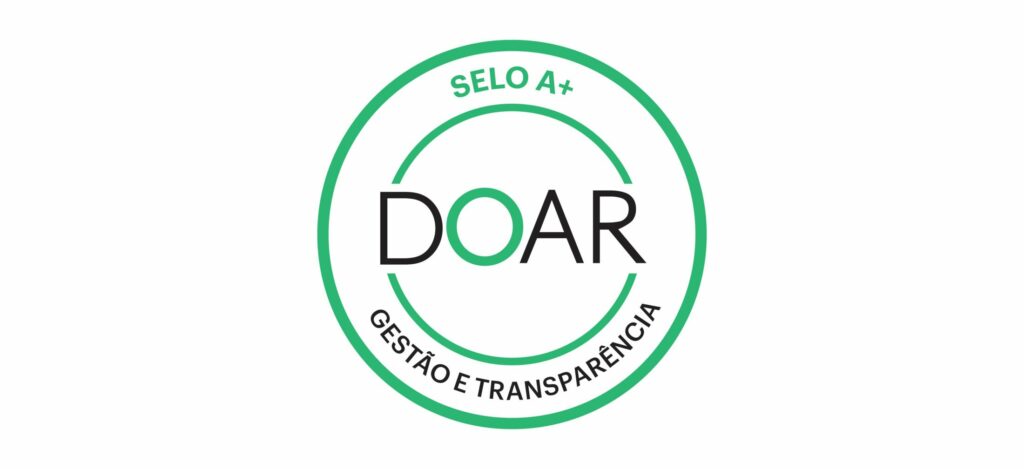
30/04/2024
CERTIFICATION STRENGTHENS THE PROJECT’S CREDIBILITY WITH CIVIL SOCIETY
Pro Criança Cardiac was approved in the audit process of the 2020-23 Donate Criteria Seal, with 49 points out of a possible 52, and qualified with the A+ Seal.
The Doar Management and Transparency Seal Certificate, achieved by Pro Criança this July, is from Instituto Doar and means that the institution becomes part of a group that has also achieved the quality standard defined by the Institute.
The objective of Instituto Doar is to guarantee standards that help donors, financiers and supporters make decisions. For Pro, it is another supporter of the network that takes care of needy children with heart disease.
Among the institutions that acquired the Seal are ABRACESOLIDÁRIO, Brazil Foundation, Hospital Pequeno Príncipe, Instituto Guga Kuerten, Lar Menino Deus, Pró-Saber SP, as well as others that are references in their areas: Education, Health, Sports, among others.
The seal is based on the main international certification models for civil society organizations in relation to codes of conduct that adopt and judge as standards the excellence of strategy, governance, communication, financing strategy, accountability and other aspects.
ABOUT DOAR INSTITUTE
In addition to the Seal, the Best NGOs, PQGT, Transparent NGO and Most Liked Ranking certifications are part of the Institute, from the international organization Instituto Donar. In Brazil, they began their work in 2012 at the NGO Brasil event, when they had the opportunity to mobilize the more than 500 organizations that were present at the event.
Pro Criança achieved the Doar A+ Management and Transparency Seal

Social care and commitment to sustainability mark the first meeting of the Humanization Cycle
30/04/2024
August started in full swing for Pro Criança Cardiac collaborators, gathered virtually for the first lecture of the institution’s Humanization Cycle. The initiative provides for a monthly meeting – free and open to the public – on various subjects and for different audiences. The objective is to reinforce investment in Humanized Governance practices, pioneered in the Third Sector by Pro Criança, in the second half of this year.
Those who conducted the training on “The Future of Organizations and ECG Factors” were Mariana Brunelli, a PhD student in Administration at the PUC-Rio Business School, and Renata Coutinho, a Master in Business Administration from the same university. The mediation was carried out by professor Luana Lourenço, from Ocean Consultoria.
The speakers shared their knowledge on the topic, which also culminates in excellent medical care thanks to team satisfaction, and gave a retrospective on the transformations of organizations over time, with Corporate Responsibility as one of the central points.
The need for transparency experienced in the desire to inform about their practices, fairness in the treatment of employees, accountability and sustainability were at the center of the explanations. More than profit, companies and organizations, according to the speakers, began to adopt activism as the key to their success. At the same time, those that adopt Humanized Governance are more perennial and survive, reinforcing the equation of social + environmental care.
This Governance, according to the speakers, must be appropriate to the size of the company and its peculiarities, always remembering that every corporation is a set of parts/human beings and that the more empathy they produce with employees, the more satisfaction and commitment they can.
The medical and executive directors of Pro Criança, Isabela Rangel and Mitzy Cremona, reinforced humanization, with employees at the center of attention, as a path of no return within an institution that works daily with the purposes of love and giving of oneself to others .
Social care and commitment to sustainability mark the first meeting of the Humanization Cycle
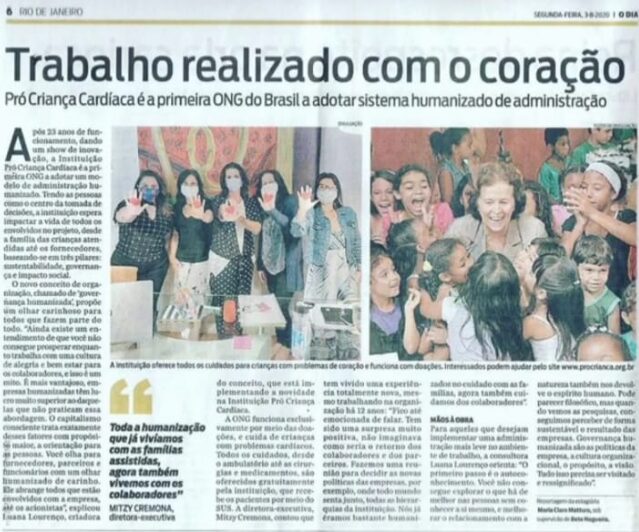
DIA – Pro Criança is the first NGO in Brazil to adopt a humanized administration system
30/04/2024
NEWSPAPER THE DAY
By Maria Clara Matturo
After 27 years of operation, showing a show of innovation, Instituição Pró Criança Cardiac is the first NGO to adopt a humanized administration model. With people at the center of decision-making, the institution hopes to impact the lives of everyone involved in the project, from the families of the children served to the suppliers, based on three pillars: sustainability, governance and social impact.
The new concept of organization, called ‘humanized governance’, proposes a caring look at everyone who is part of the whole. “There is still an understanding that you cannot prosper while working with a culture of joy and well-being for employees, and this is a myth. It is more advantageous, humanized companies have much higher profits than those that do not practice this approach. Conscious capitalism addresses exactly these factors with a greater purpose, orientation towards people. You look at suppliers, partners and employees with a humanized look of affection. It covers everyone involved with the company, even the shareholders”, explained Luana Lourenço, creator of the concept, who is implementing the new feature at Instituição Pró Criança Cardiac.
The NGO operates exclusively through donations, and cares for children with heart problems. All care, from the outpatient clinic to surgeries and medications, is offered free of charge by the institution, which receives patients through the SUS. The executive director, Mitzy Cremona, said that she has had a completely new experience, even though she has worked at the organization for 12 years: “I’m even excited to talk about it. It has been a very positive surprise, she had no idea what the feedback from employees and partners would be like. We hold a meeting to decide new company policies, for example, where everyone sits together, all hierarchies of the institution. We were already very humanized in caring for families, now we also care for employees.”
Get to work
For those who wish to implement lighter administration in the workplace, consultant Luana Lourenço advises: “the first step is self-knowledge. You can’t tap into the best in people without knowing yourself, and improving our relationship with nature also gives us back the human spirit. It may seem philosophical, but when we look at the research, we can see the results of companies in a sustainable way. Humanized governance is the company’s policies, organizational culture, purpose, vision. All of this needs to be visited and given new meaning.”
Pro Criança is the first NGO in Brazil to adopt a humanized administration system

What is the New General Data Protection Law (LGPD)?
10/30/2020
The New General Data Protection Law, Law 13,709, of August 14, 2019, applied to all companies, also affects Third Sector companies. NGOs, foundations, charitable entities, community funds, non-profit entities, residents’ associations, among others, must comply with the requirements of this law.
The legislation aims to protect personal data and is based on: respect for privacy, informational self-determination, freedom of expression, information, communication and opinion; the inviolability of intimacy, honor and image; economic and technological development and innovation; free enterprise, free competition and consumer protection; and human rights, the free development of personality, dignity and the exercise of citizenship by natural persons.
The big news is that health institutions must adjust all internal processes and data processing must comply with the guidelines set out in article 11 of Law 13,709/19. Throughout the process, Pro Criança Cardiac will rely on the expertise of Dr. Jose Carlos Vaz e Dias, partner at Vaz e Dias Advogados & Associados, to be carried out on a Pro Bono basis.
‘Pro Criança Cardiac, which has the characteristic of being a pioneering company in the third sector, informs all its stakeholders that it will comply with the new Data Protection Law and we will fully comply with the LGPD.’ , Executive Director of the Institution.
What is the New General Data Protection Law?

In 2020, Pro Criança is one of the 100 best NGOs in Brazil
30/04/2024
A PIONEER IN THE THIRD SECTOR IN THE ADOPTION OF HUMANIZED GOVERNANCE AND A CODE OF ETHICS AND CONDUCT, AND INTEGRATED WITH THE BRAZILIAN CONSCIOUS CAPITALISM AND BRAZILIAN CORPORATE GOVERNANCE INSTITUTES IN 2020, THE ORGANIZATION TAKES A LEAP TOWARDS EXCELLENCE – ESSENTIAL TO KEEPING DONORS AND LOYALTY, PAINS AND SUPPORTERS OF YOUR CAUSE
Daily social work, intense and filled with love and care, has just received yet another recognition, especially important in such a challenging year. Pro Criança Cardiac won the 2020 Best NGOs Award for the second consecutive year for its good practices in governance, transparency, communication and financing. In a universe of 670 registered organizations, Pro Criança was also among the 15 best Brazilian NGOs in the health sector and among the eight best Non-Governmental Organizations in the state of Rio de Janeiro.
The awards ceremony will be on December 10th, starting at 7pm, broadcast on YouTube Canal Futura and on the Futura website – the link to the broadcast will be available on the Melhores ONGs website. In addition to the 100 best, the public will also see the highlights in the special categories, as well as the best NGO among them all. This is the fifth edition of the award, which is consolidated as one of the largest in the Brazilian third sector and is considered a valuable compass for potential supporters. After all, among so many social organizations, how do you choose which one to support?
Expansion and professionalization to increasingly gain the trust of the partners who maintain the institution
It constantly strengthens itself, without losing focus on sustainability, as well as reinforcing its excellence through the formalization of organizational concepts. For the executive director of Pro Criança Cardiac, Mitzy Cremona Conde, an NGO must work to have robust guidelines and policies equivalent to a large company in the Brazilian market. And that’s what the institution did throughout 2020, even in the middle of the pandemic. Among the various pioneering attitudes in the Third Sector, Pro Criança…
I- Implemented a Humanized Governance process
II – Designed its Code of Ethics and Conduct
III – Conducted a series of training to comply with the New Data Protection Law
IV – Hired external consultancy for medium and long-term financial planning.
V – Became a partner of the Instituto Capitalismo Consciente Brasil
VI – Joined the select group of companies of the Brazilian Institute of Corporate Governance
According to Dr. Rosa Celia, founder of Pro Criança Cardiac, in addition to offering the best of medicine for children, with care guided by rigorous standards of quality and professional ethics, Pro Criança wants to be a pioneer in excellence in implementation, training and compliance with compliance standards and guidelines and increasingly gain the trust of the partners who keep the institution in operation.
ABOUT CARDIAC PRO CHILDREN
Pro Criança Cardiac is a private medical and non-profit association, located in Botafogo, South Zone in Rio de Janeiro, and was founded in 1996 by pediatric cardiologist Dr. Rosa Celia. In 27 years of operation, it has served more than 15,500 children with cardiac needs, performed more than 35,000 outpatient visits and almost1,800 invasive procedures, cardiac surgeries and catheterizations (diagnostic and therapeutic).
Pro Criança is one of the 100 best NGOs in Brazil
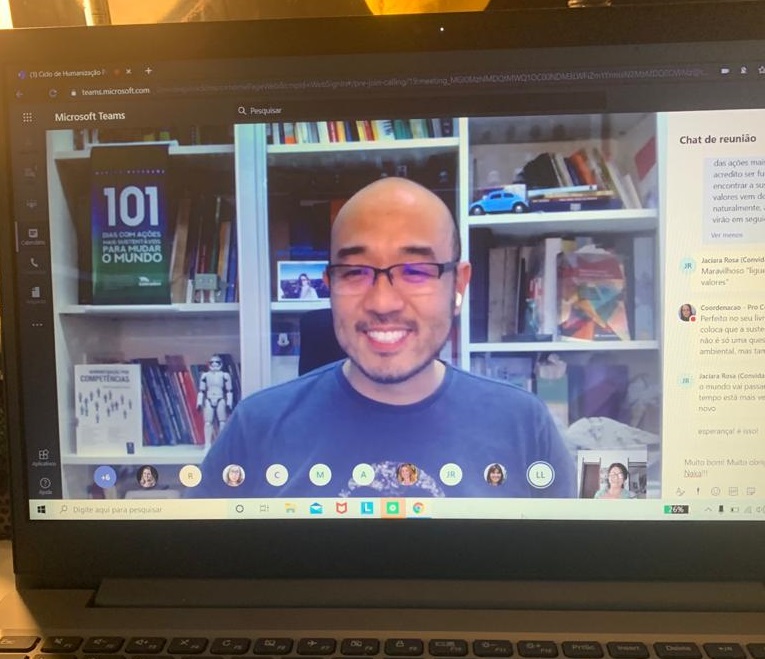
“It’s no use just believing, talking and posting on the networks. It is necessary to act”
30/04/2024
WITH SIMPLICITY AND A LOT OF KNOWLEDGE, PROF. MARCUS NAKAGAWA ADDRESSES SIMPLE, BUT URGENT ACTIONS TO REGENERATE THE PLANET AND RELATIONSHIPS AT THE FIFTH MEETING OF THE HUMANIZATION CYCLE OF PRO CRIANÇA CARDIACA
In 2019, Marcus Nakagawa received the Jabuti Award in the Creative Economy category with “101 days of More Sustainable Actions to Change the World”. The recognition of a work of this content with the highest award in the Brazilian publishing market signals how much society needs to transform. It also brings with it the main message: change starts with each person and is a daily exercise.
“Our planet needs to maintain its natural resources and unfortunately we are already in overdraft. Since August 22, the Earth has been in the red and is unable to regenerate everything that humans consume until the end of the year”, warns Nakagawa. It refers to “Overshoot Day”, calculated annually by the Global Footprint Network organization. The global ecological deficit began in the 1970s and our accumulated debt is already equivalent to 18 Earth years.
“The word now needs to be REGENERATION. We need to have other purposes in life, we need to accelerate this process”, warned the professor this Monday, December 7th, during the fifth meeting of the Pro Criança Cardiac Humanization Cycle, held online by the institution. Those who attended were able to see that this is the path to “Sustainability in everyday life and the search for a more inclusive and environmentally regenerative world”, the theme of the event. With simplicity and a lot of charisma, for two hours Prof. Naka shared her tips and knowledge with the mediation of Luana Lourenço, founder and director of Ocean Governança.
Speaker and master in administration with a focus on sustainability in business strategy, Naka is an undergraduate and MBA professor at ESPM on issues of ethics, socio-environmental responsibility, social entrepreneurship, third sector and entrepreneurship. He is also the founder of ESPM Social, Abraps, Instituto Marco3 and Isetor.
Should we not change our consumer desires?
The image of a huge traffic jam in the city of São Paulo opens Prof.’s presentation. Naka with the question: what is behind this photo? Individualism, which leads people to use a car just for themselves, and consumerism, which still leads the world to buy cars more for status than for necessity, are some examples.
But if nature calls for an economy of its natural resources, if mobility with own cars has reached its limits in big cities, shouldn’t we change our consumption desires? “The younger generations no longer want to buy a car, they prefer to use transport apps. They don’t even want their own home, but the freedom to move whenever they want”, explains Naka.
He takes advantage and draws attention to the expression “new normal”, which has been used to define the post-pandemic phase. “But did we have a ‘normal’ before? Is it normal, for example, that we need to create so many civil society organizations and struggle to raise resources and provide society with the basics to which it is entitled? The hard part is that we think this is all normal. What we need is to get out of this abnormality”, says the professor.
How to get out of the abnormality?
The use of social networks as a tool for transformation is one of the points highlighted by the professor and gains immense strength when those who post also do so. “The video of the plastic straw coming out of a turtle’s mouth, for example, became a public policy that prohibits the use of this type of product. Yes, it is possible to make changes through social networks, but there is no point in just believing, talking and posting on the networks. We need to act,” he highlights.
“I didn’t know about TikTok until I saw my daughter using it. I decided to post a photo of my compost bin and it received 18 thousand views. You can do this too, use your own habits to encourage family and friends to take more sustainable actions, for example, show how you make juice with pineapple peels, promote the idea of peeing in the bath to save a flush. (imagine a house with many people). The impact of the compost bin was incredible and anyone can have one at home, there are sizes to suit all tastes, including small apartments. We have our cell phone in our hand all the time and we need to use it,” he says.
Social thoughts: from within yourself to companies and the world
“My son, turn off the light, turn off the tap, otherwise the bill will be high.” According to Naka, we grew up with our thoughts always focused on finances, we spent our entire lives thinking about making money and paying the bills. But isn’t finance important? “Of course it is, but the world is not just money,” she says. “We need to make our decisions from a social point of view as well. If we are going to buy a pen, we try to find out: ‘Who made this pen? Was it made by slave, child labor? Is it an approved product? Won’t it hurt me, my son?’”
And this thought needs to overflow from within oneself into companies. Naka highlights the importance of the corporate world having its range of sustainable actions: waste management, respect for human rights, ethical stance… “Do you know which brands will be remembered after the pandemic? Those who donated. There were over 6 billion donations to help the population. Will we continue like this?,” he reflects.
Naka was questioned about this movement of donations from large companies, which was not felt by the institution. Pro Criança relies on donations, mostly from small business owners and individuals.
According to the professor, shareholders have chosen to buy shares in large companies and this attitude is already having an impact on companies to make them more sustainable. It is very likely that they will look for positive agendas to try to minimize their impacts and social organizations need to be ready to receive these investments, for example, with the development of indicators that account for the work they carry out, for example, education, human development indicators of families.
“I believe that in Rio the competition and the problems are very great, and perhaps some problems are closer to these big companies than others. The path is really with small and medium-sized companies and with individuals, who make their donation every month. That’s the battle, to go get it. It’s an effort from the whole team, it’s not easy”, recognizes Naka.
And finally… why is it important to humanize companies?
“Companies without people do not exist. But it’s important to be real people, not robots. It’s very common to see companies robotize themselves, it’s just goals, numbers… We will only evolve when people can be themselves. This change is already happening, but there is still a lot to be done. We need to work in places where we can express our feelings, and do our duties, but also exercise our rights”
SOME TIPS FROM PROF. NAKA:
1) Have a compost bin and slightly reduce the amount of trash to be collected
2) Turn off the light. Understand what is behind, the entire ecosystem behind this act. For example, we have the thermoelectric plants turned on because it didn’t rain enough this year. Using the same reasoning, choose products with an energy saving seal.
3) Where does our tax money go? Follow the actions of those who voted and demand from your politician what he promised.
4) Help a friend when he needs it.
5) Always recycle plastic, paper, glass, take your batteries to collection points…
6) Make a small vegetable garden, even those who live in an apartment can have a vertical garden. You take care of a living being, it’s nice, you’ll have more contact with nature.
7) Don’t be “ecochato”, “bionasty”, or socially boring. Just do your part and be cool.
8) If you doubt global warming, if you think the Earth is flat, try talking to people different from you to learn about other points of view. Being radical, closing yourself off to what is different is what caused the greatest atrocities in the world.
9) Do you really like or need your car? Think about ways to compensate for the damage a car brings to the environment.
10) Choose and do one action per day.
“And, finally, rethink your lifestyle, as we need to seek more purpose and more legacy – which is the impact we have on other people – whether for good or for bad. May it be for the good”, he adds.
The word now needs to be REGENERATION

100 best NGOs in Brazil and one of the 15 best NGOs in health
30/04/2024
In a 27-year history, people have always been protagonists in the routine of Pro Criança Cardiac, which takes care of small and young people with heart problems and their families. The year 2020, however, brought attention to people management within the institution, which became the first in the Third Sector to implement a Humanized Governance process with a focus on employee satisfaction and well-being in the first place.
“When you live harmoniously, results also grow”, says Mitzy Cremona Conde, executive director of Pro Criança. With a series of training and other activities – which include a monthly Cycle that is free and open to the public – employees experience motivation.
– We are in a process of expansion and professionalization, which streamlines internal processes and shifts the focus of employees to the institution’s need for sustainability, declares Isabela Rangel, medical director of Pro Criança Cardiac.
To enable and preserve the mission, vision and values, guiding and serving as a reference to all employees for professional and personal performance that encompasses the highest ethical, honesty and integrity standards, the institution also recently designed the second edition of its Code of Ethics and Conduct.
And, in parallel, it is preparing to train employees and ensure that data collection, storage and use of personal data are increasingly in accordance with protection and security, as per the New Data Protection Law.
Turbo growth
According to Dr. Rosa Celia, founder of Pro Criança Cardiac, in addition to offering the best of medicine for children, with care guided by rigorous standards of quality and professional ethics, Pro wants to be a pioneer in excellence in implementation, training and compliance with compliance standards and guidelines and increasingly gain the trust of the partners who keep the Project active.
The restructuring of its internal processes also relies on consultancy hired from a global corporate services network, with more than 36 thousand employees, operating in 146 territories, for medium and long-term financial planning, without leaving aside the permanent social mentality .
These moments of pause and reflection are fundamental for any organization and for the success of its initiatives. The objective is to constantly strengthen itself, without losing focus on sustainability, as well as reinforcing its excellence through the formalization of organizational concepts that led, for example, to the institution being one of the Best NGOs in Brazil in 2019 and certified by the Doar A+ Seal in 2020, with 49 points out of a possible 52. These standards help donors, funders and supporters make decisions and reinforce the importance of transparency.
Pro Criança Cardiac dives into Conscious Capitalism to reinforce the movement against social inequality in Brazil
Recently, Pro Criança received the Partner/I SUPPORT seal from the Instituto Capitalismo Consciente Brasil, which exists to transform the way of making investments and business in Brazil, multiplying the pillars that lead to more humane, more ethical and more sustainable management and with the aim of reducing inequalities.
And it is also part of a select group of companies that are part of the Brazilian Institute of Corporate Governance. For the executive director, Mitzy Cremona Conde, an NGO must work to have robust guidelines and policies equivalent to a large company in the Brazilian market.
And it was elected, for the second year in a row, one of the 100 Best NGOs in 2020
Pro Criança Cardiac won the 2020 Best NGOs Award for the second consecutive year for its good practices in governance, transparency, communication and financing. In a universe of 670 registered organizations, Pro Criança was also among the 15 best Brazilian NGOs in the health sector and among the eight best Non-Governmental Organizations in the state of Rio de Janeiro.
ABOUT CARDIAC PRO CHILDREN
Pro Criança Cardiac is a private medical and non-profit association, located in Botafogo, South Zone in Rio de Janeiro, and was founded in 1996 by pediatric cardiologist Dr. Rosa Celia. In 24 years of operation, it has served more than 15,500 children with cardiac needs, performed more than 35,000 outpatient visits and almost ,800 invasive procedures, cardiac surgeries and catheterizations (diagnostic and therapeutic).
100 best NGOs in Brazil and one of the 15 best NGOs in health

Pro Criança inaugurates “Institutional Check-up”
30/04/2024
“The implementation of the Institutional check-up was the way we found to infect the entire team, with the performance indicators that we routinely monitor in the Pro Criança controllership”, explains controller Gabriel Buzzi.
After a long period of working on strategic planning in 2020, the institution’s main KPIs for 2021 were identified. Among them, it was observed that the number of services and the amount of donations are the heart of the Institution’s operational and assistance activity. Therefore, these indicators will be constantly disseminated to the entire team using a language very close to the Pro Criança universe: pediatric cardiology. The primary objective with this initiative is to let everyone know exactly how their work reflects the execution of the strategy. The next step is to work on disseminating and dynamically feeding this content to our donors, partners, patients and the general public, increasing the degree of transparency and reaffirming our commitment to best practices.
The “Check-Up” consists of a series of exams and evaluations carried out by a doctor, with the aim of evaluating the patient’s condition and capacity, identifying possible changes in their functioning.
At Pro Criança Cardiac, we carry out the “Institutional Check-Up” which allows us to evaluate the “health” of the institution. It is believed that some “diseases” have a better chance of being cured when detected early.
Therefore, carrying out some tests is essential:
Institutional Electro
“Electro” is an exam carried out with the aim of identifying any failure in electrical conduction through the heart. Likewise, Pro Criança’s “Institutional Electro” aims to identify whether its structure is moving as it should and detect possible “arrhythmias” and “tachycardias”, such as drops in donations and the number of services, which guide institutional performance.
Institutional Holter
Finally, the “Holter” exam is like a long-lasting “Electro”, which records the heart rhythm 24 hours a day. Similarly, the “Institutional Holter” aims to observe the specific conditions that can alter the “heartbeat” in the Institution’s administrative and assistance operations, enabling us to adjust the execution of our annual strategy.
Institutional Eco
“Echo” is an ultrasound examination of the heart that provides images based on sound, obtained at the time of the examination. Therefore, the “Institutional Echo” shows the current moment in comparison to recent years – allowing us to obtain static and/or moving “images” of our “muscles and heart valves” – donations and services.
Pro Criança inaugurates “Institutional Check-up”

Pro Criança Cardiac celebrates heart month with new vacancies and “Use your heart” campaign to save lives
30/04/2024
September is the month of the heart. And Pro Criança Cardiac launches the “Use your heart” campaign, with the aim of inspiring unity and promoting generosity. Everyone united in favor of cardiac children, no matter how: volunteering, donating via PIX (the key is the email: procriança@procrianca.org.br) or some item, such as powdered food to support needy families whose children are undergoing treatment.
“Intense, nostalgic, rational, dreamy and generous hearts. There is always a way to touch each person’s feelings to help those in need”, declared Dr. Rosa Celia, founder and president of Pro Criança Cardiac.
Currently, Pro Criança has around 16 new monthly vacancies for first care, to be filled depending on availability or urgency previously assessed by the medical team. It has a medical team, nutrition, dentistry and psychology services in appropriate facilities to provide children with serious care and guarantee families the comfort they need during the process.
Since 1996, the institution has offered excellent cardiology services in the treatment of needy children with congenital heart diseases and integrated social actions for this population. Even with the path of success and recognition in the Third Sector (among its certifications it won the Best NGOs Award three times in a row), it strives to increase its commitment to society and bring medical care to those who cannot pay for it.
“Our partners and the donations we receive also allow us to help with basic food baskets and other essential items. In the Project, it is the monitoring and awareness of the need for it that defines the success of any treatment”, says Dr. Rosa.
About PRO CRIANÇA CARDÍACA
Non-profit medical institution founded in 1996 by cardiologist Dr. Rosa Celia. In 26 years, it has served more than 15 thousand children and adolescents with cardiac needs, carried out more than 36 thousand cardiological consultations and 1,600 invasive procedures, cardiac surgeries and catheterizations – diagnostic and therapeutic.
At the headquarters, around 140 patients are treated monthly by a team of highly qualified professionals, who carry out clinical assessments, electrocardiograms, echocardiograms and 24-hour Holter monitoring. Other outpatient exams, such as hematological evaluation and tomography, and invasive procedures, including heart surgeries and catheterizations, are carried out at the Pro Criança Jutta Batista Pediatric Hospital, a partner of the Pro Criança Cardiac Project.
After discharge from hospital, a return to the outpatient clinic is scheduled for the child to continue treatment. Throughout the process, the same team accompanies the patient offering full support.
Service
Donations via PIX: procriança@procrianca.org.br
Openings for service: Monday to Friday, from 8am to 6pm and WhatsApp only: 55 21 9 8237-3394
Pro Criança Cardiac celebrates heart month with new vacancies and “Use your heart” campaign to save lives

LGPD: More than a law, an urgent need to change organizational culture
30/04/2024
by Bruna Delgado, Legal Assistant at Pro Criança Cardiac
The General Data Protection Law (Law No. 13,709/18) came into force on 09/18/2020 and has already brought numerous needs for changes within all companies and organizations in the country. To understand the importance of this new law, Pro Criança started 2021 with talks to raise awareness among the team about the effective start of the implementation of the LGPD. We need to be aware of the extreme seriousness of dealing with third-party personal data, especially when it comes to health data, established by law as Sensitive Data.
Pro Criança Cardiac deals, almost entirely, with sensitive data. With this, we found ourselves facing a new reality: the imminent need for a change in organizational culture.
When we talk about LGPD, what we first think of, as a rule, is authorization to use images, Privacy Policy on the website, Cookies collection notice. All of these measures are relevant and must be applied, as well as the establishment of solid Corporate Governance, transparency, risk management, a consistent Compliance program, among many other control strategies.
However, if we have these impeccable documents and perfect procedures, but we do not have a change in the organizational culture of the entire team, these procedures will just be more bureaucracy for us to keep in a drawer.
LGPD: More than a law, an urgent need to change organizational culture
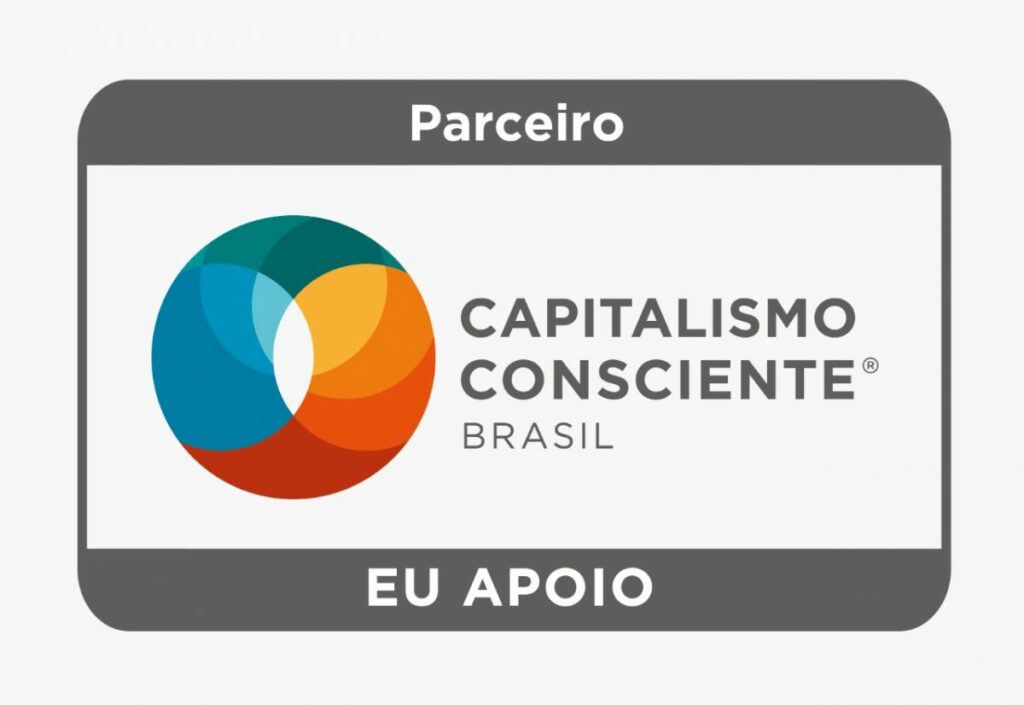
Business guided by love, care and conscience
30/04/2024
PRO CRIANÇA CARDÍACA OFFICIALLY DIVES INTO CONSCIOUS CAPITALISM
TO REINFORCE THE MOVEMENT AGAINST SOCIAL INEQUALITY IN BRAZIL
The discussion is growing around the redefinition of capitalist values in today’s world. For many, the wealth generated and the division between a few are numbered. In this scenario, Conscious Capitalism takes the lead in the global debate.
Pro Criança Cardiac is in this same movement and sees itself as a partner and multiplier of the philosophy of new leadership and transformation for the benefit of humanity. Recently, it received the Partner/I SUPPORT seal from the Instituto Capitalismo Consciente Brasil, which exists to transform the way of making investments and business in Brazil, multiplying the pillars that lead to more humane, more ethical and more sustainable management and with the objective to reduce inequalities.
Based on this partnership, the institution will participate in updates on the topic and will also intensify contact with issues related to sustainability, stakeholders, purpose and awareness. These fronts have also been worked on with Ocean Governança, responsible for implementing Humanized Governance at Pro Criança, a partner of Capitalismo Consciente Brasil.
– Our institution has already had the purpose of contributing to society, since its foundation in 1996. Pro Criança’s mission is to care for needy children with heart disease and is committed to the social transformation of Brazil, reinforces the executive director of Pro Criança, Mitzy Cremona.
The commitment to healing society’s problems and pains, encouraging conscious leadership, impartial relationships between all stakeholders, and preserving the conscious culture that supports the purpose in practice within organizations are the pillars of Conscious Capitalism’s work.
According to the executive director of Pro Criança, joining the hall of partner companies of Capitalismo Consciente is “literating” the attitudes that the institution already has.
Business guided by love, care and conscience
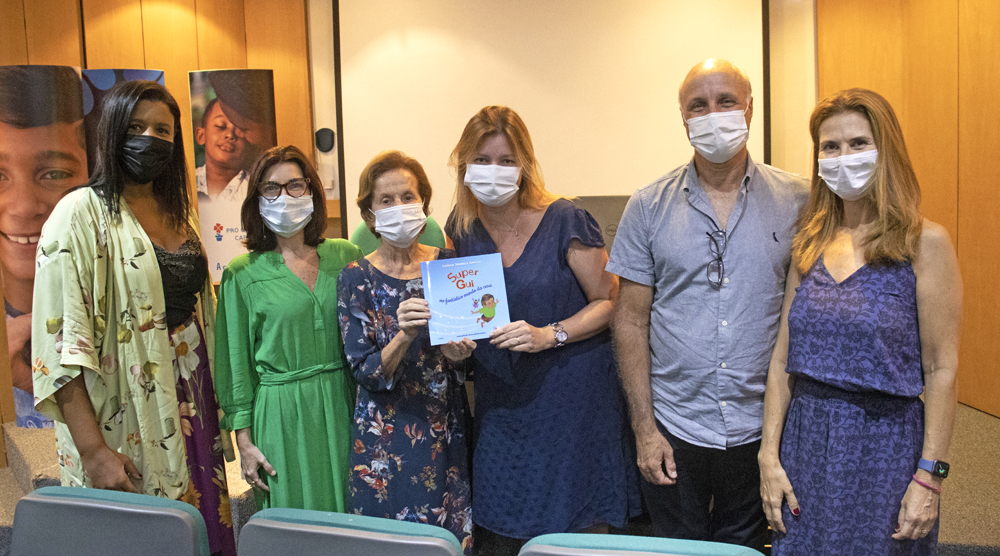
ESG specialist took the reality of poor black women during the pandemic to Pro Criança’s Humanization Cycle
30/04/2024
What is the social responsibility from now on?
In March, Pro Criança Cardiac received ESG specialist Juliana Kaiser, professor of Diversity and Business at UFRJ and PUC-Rio, for the Project’s Humanization Cycle. With the theme “Social Responsibility in Brazil – Challenges in the post-pandemic country”, Juliana united the issue of gender, also due to Women’s Month, with that of race and social class, her objects of study, showing, through indicators numerically, as poor black women were the most (and even more) affected in Brazil in the last two years.
The overload of this group, the complexity of caring for children and adolescents outside of school and social vulnerability were analyzed and the indicators were cross-referenced with the public served by Pro Criança Cardiac, as well as the social responsibility towards them. In addition to the overload of domestic tasks, women often had to give up their small jobs because of their children.
What does the illiteracy rate in this period mean in terms of delay in the country’s development? And, above all, asked Juliana Kaiser, what are the possible tools to combat this reality? “How should companies and civil society mobilize in this sense, given that the State has failed to promote public policies regarding access to education?” The speaker drew attention to the difficulty of this group, for example, attending classes online when schools were organized to do so, due to the lack of internet data and cell phones available in real time.
– Data on domestic violence due to confinement also shows the difference between middle-class and impoverished women, which, in Brazil, is also directly linked to color. Being confined in a 100m2 apartment is different from being confined in a 15m2 environment with more children and fewer privileges, she analyzed between the points of the conversation.
According to Juliana, the pandemic therefore increases inequality and leaves women in the storm and with completely different boats. The main objective of the lecture was to raise the question: what to do from now on?
ESpecialist took the reality of poor black women during the pandemic to Pro Criança’s Humanization Cycle

White January is mental health awareness month.
30/04/2024
The first month of the year brings with it a motivation for change, transformation and new directions. The color white symbolizes purity, the color white reflects all the colors of the spectrum.
A blank paper, a blank canvas presents itself in the immensity of the possibilities of creation.
Choosing this month as a campaign for mental health makes us reflect on this openness in our lives as an active subject responsible for this perspective, which is why it is not restricted to just one month, it must be maintained throughout the year so that it does not pass. This is what requires so much attention from us.
The social bond is what is relevant and consequently presents relationships to us as an investigation of our mental health condition, man and his confrontation with anguish, with others, with the pain of existing, inherent to each one.
Any suffering calls for a look at the one that makes us equal.
Some psychiatric illnesses frighten us, for example, schizophrenia, which is one of the ways in which the subject locates himself in the world, which does not cease to be a subject in his singularity, but this subject establishes himself within the scope of the severity of psychopathologies, neglecting all the other forms of psychic illness that are established in our humanity.
How many depressive children and young people with difficulties, affected, who present compromising conditions at an astonishing speed, how many suicides occur.
We are currently suffering a true inner battle evidenced in the post-pandemic phase, in a single moment, which increases, individualized traumatic effects that already exist and which materialize in the overflow of relationships!
Discomfort will always exist, but there is a way to have a different way of positioning the subject in the face of this discomfort.
Be a driver of mental health in your life, be present not in an absolute and sealed knowledge of what you heard about.
Be a protagonist of your story, act, be interested, talk about it, observe what writing and coloring you can do in this blank space that life offers you!
We, at Pro Criança Cardiac, are attentive to your actions and wisdom in supporting this never-ending campaign.
Claudia Marcia Blois, Psychologist and Psychoanalyst
According to Dr Isabela Rangel, the psychological care in the project provides support to the patient and family, dealing with the psychological issues associated with heart disease.
“We mainly seek to develop resilience in the preoperative period and promote understanding of one’s own feelings regarding the disease, in addition to developing acceptance of the patient’s restrictions on the usual activities of their age. It is important to highlight that conditions related to both emotional and socioeconomic needs are also addressed”, declares the Medical Director of Pro Criança.
White January is mental health awareness month.
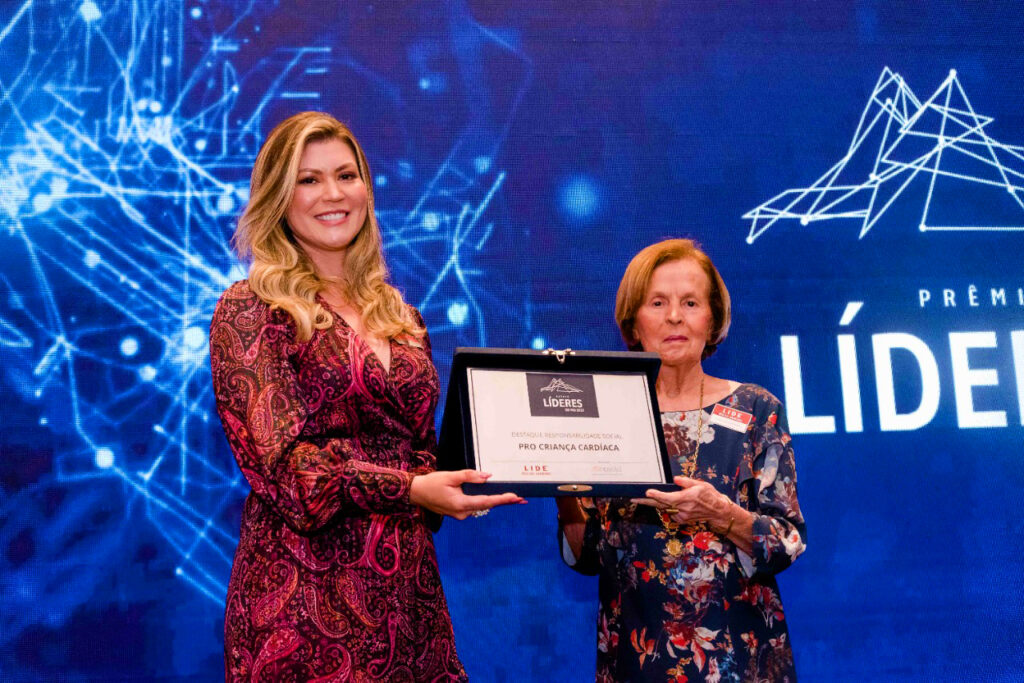
Social Responsibility Award for Pro Criança Cardiac
30/04/2024
Pediatric cardiologist Dr Rosa Celia, founder of Pro Criança Cardiac, was awarded in the Social Responsibility category at the Lideres Rio de Janeiro 2022 Prize, organized by Grupo Empresarial Lide Rio and the 15th Ofici de Notas.
Held since 2011, the award focuses on highlighting businesspeople, companies, institutions and entrepreneurs who actively contribute to a better business scenario in the state of Rio de Janeiro.
“It is a joy to receive this honor on behalf of everyone who works with me at Pro Criança. We are a team committed to saving children’s lives and supporting their families during treatment. Thank you!”, declared Dr. Rosa.
Since 1996, Pro Criança Cardiac has had a total impact on more than 150,000 people and 100,000 outpatient visits, has provided care for more than 15,000 children and performed more than 1,600 invasive procedures.
The choice is based on research with different groups in society, taking into account involvement with local history, as well as the ability to take Rio’s positive image to other regions of the country and the world.
“More than loving Rio, everyone needs to dedicate themselves and work, more and more, for the growth of the state, providing a better quality of life and a healthy business environment. This award wants to recognize and give visibility to those who worked tirelessly for a better Rio”, declared Andréia Repsold, president of LIDE Rio.
Social Responsibility Award for Pro Criança Cardiac
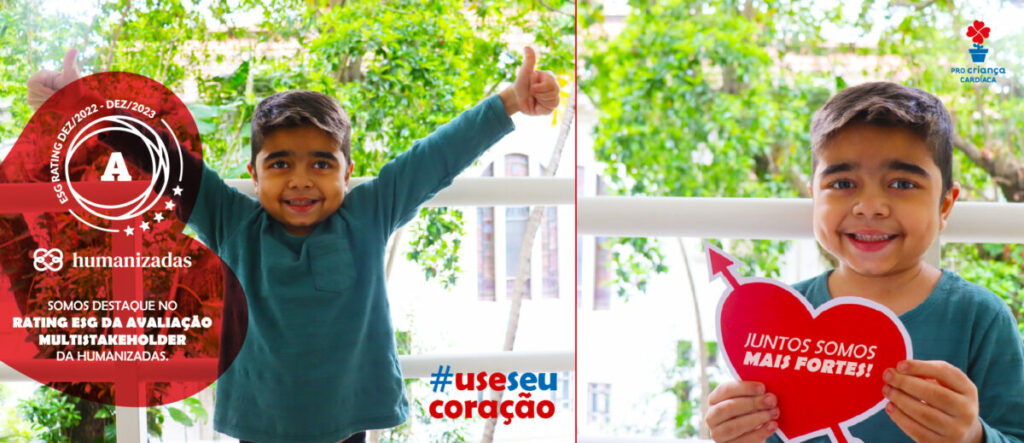
Pro Criança Cardiac records the highest number of cardiological services since its foundation and is accredited with ESG Rating A.
20/04/2024
Pro Criança Cardiac begins 2023 by celebrating saved lives and the contribution to the scenario of congenital heart disease in Brazil, which affects around 30 thousand children per year. The social organization, founded and led by cardiologist Dr. Rosa Celia, provided 1,933 consultations in 2022, the highest number of consultations since its creation in 1996, and absorbed a further 207 children for cardiological monitoring. The beginning of the year is also being marked by Humanizada’s ESG Rating A accreditation, a very important recognition for a Third Sector organization.
According to data from the Ministry of Health, congenital heart defects represent 40% of all malformations at birth, being the condition that kills the most in childhood. The first service is the beginning of a care trajectory – after preventive care during the mother’s pregnancy – and, at Pro Criança, it is carried out by a team of qualified professionals with clinical assessment, electrocardiogram, echocardiogram and 24-hour Holter monitoring. In 2022, Pro Criança Cardiaca welcomed another 207 families.
The medical director of Pro Criança Cardiac, Dr. Isabela Rangel, explains that congenital heart defects are anomalies in the structure and/or function of the heart, which occur during fetal life and reinforces the importance of early diagnosis. “The work carried out at Pro Criança Cardiac is fundamental, as it provides the diagnosis, treatment and monitoring of these patients in addition to providing the necessary support to the family”, explains the cardiologist, highlighting that all assistance promoted by the Project is only possible through the contributions of partners and thanks to the participation of volunteers in various tasks. “Without them, it wouldn’t be possible”, declares Dr. Isabela.
In 26 years of operation, 151 thousand people were impacted, 15,255 patients were treated, 100 thousand consultations were performed and 1,703 invasive procedures were performed. Data was recorded until November 2022.
According to the executive director of Pro Criança Cardiac, Mitzy Cremona, the best year in the history of Pro Criança is due to executive management fully integrated with the care goals established by Dr. Rosa Celia and Dr. Isabela Rangel, as well as the commitment to the principles of transparency and agility in reporting. “It is extremely important to attribute the results achieved in 2022 to the efficiency of the best corporate governance practices adopted and the effective participation of Directors in the strategies adopted”, she explains.
The ESG rating A accreditation, released in the first days of 2023, endorses the high level of organizational maturity, meaning that Pro Criança Cardiac works with better ESG Performance (Environmental, social and governance), customer satisfaction, well-being, trust , diversity, transparency and ethics. Consequently, it also means obtaining better financial results in the medium and long term, explains Mitzy Cremona.
In addition to numbers that positively impact lives, in 2022 the social organization also received one of the most respected seals in the country in the area of Human Resources, being certified by Great Place To Work Brasil in organizational climate, which allows the measurement, in a practical way, of the employees’ perception of the company, in addition to their results in favor of internal actions for the necessary improvements.
Awards and honors in 2022
Certifications and awards throughout 2022 highlighted Pro Criança Cardiac, including the LIDE Social Responsibility Award for being the social organization that most actively contributed to a better business scenario in the state of Rio de Janeiro. Ocean Integrated Recognition Governance was considered a Pioneer in the Implementation of Humanized Governance.
In addition to these awards, the following can be highlighted:
Donate Seal, A+ score (maximum score);
PGT seal (Standards in Management and Transparency) by Instituto Doar. It guaranteed Pro Criança an A+ score, with a high standard of Management and Transparency. This certification analyzes more than 52 official documents of the organization;
Best NGOs 2019/2020/2021: Pro Criança won the Best NGOs in Brazil award for three consecutive years;
Top Performance Conscious Management: The social organization obtained a score of +92 in the Conscious Business Assessment, a survey carried out by the startup “Humanizados”, which brings the ranking of the most humanized companies in Brazil 2021;
Great Places To Work recognizes the best companies to work for nationwide and is based on reports from those who can actually evaluate them correctly: employees;
Best for Brazil: The multi-stakeholder assessment uses the Conscious Business Assessment (CBA®) instrument, which measures the stage of maturity and the quality of the relationships that the organization maintains with its different audiences.
Pro Criança is accredited with ESG Rating A
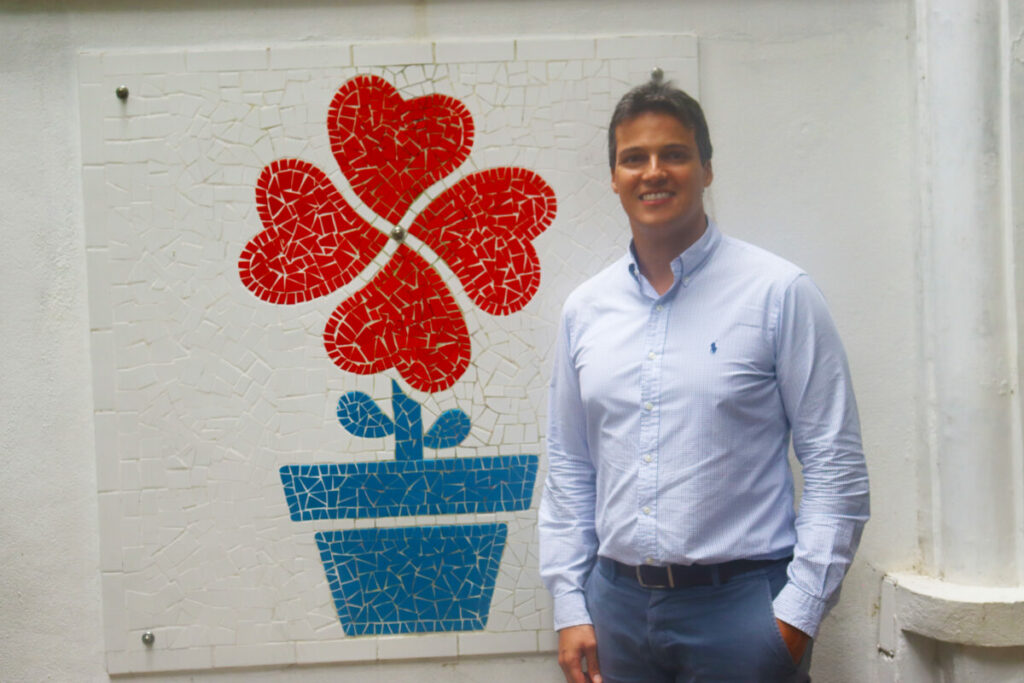
Wolff-Parkinson-White syndrome
30/04/2024
Wolff-Parkinson-White syndrome is a disease where there is an extra electrical pathway that connects the atria to the ventricles, causing the electrical impulse to reach the ventricle faster and cause tachycardia.
The cause of Wolff-Parkinson-White syndrome is congenital, that is, the change is present from birth and its manifestations can begin at any stage of life, generally from 10 to 50 years of age.
The patient may be asymptomatic or present symptoms such as palpitations, dizziness, shortness of breath, chest pain and, very rarely, sudden death.
Catheter Ablation is a definitive treatment method for this arrhythmia through which the localization and cauterization of the foci that originate it is performed. It consists of introducing catheters through a vein in the groin area that are positioned in specific locations in the heart to discover and study defects in the heart’s electrical system. This cauterization is performed by applying radiofrequency energy through the catheters. Its indication should be discussed with the doctor and generally applies to patients who have tachycardia accompanied by symptoms such as palpitations, fainting or dizziness, which are difficult to treat with medication or in cases where the patient prefers not to take medication for the long term.
“The great benefit of this procedure is obtaining a cure through minimally invasive surgery. After 5 days of rest, the patient can return to carrying out their activities normally”, concludes Dr Luiz Inácio
Dr. Luiz Antônio Inácio, Cardiologist and Arrhythmologist
Wolff-Parkinson-White syndrome
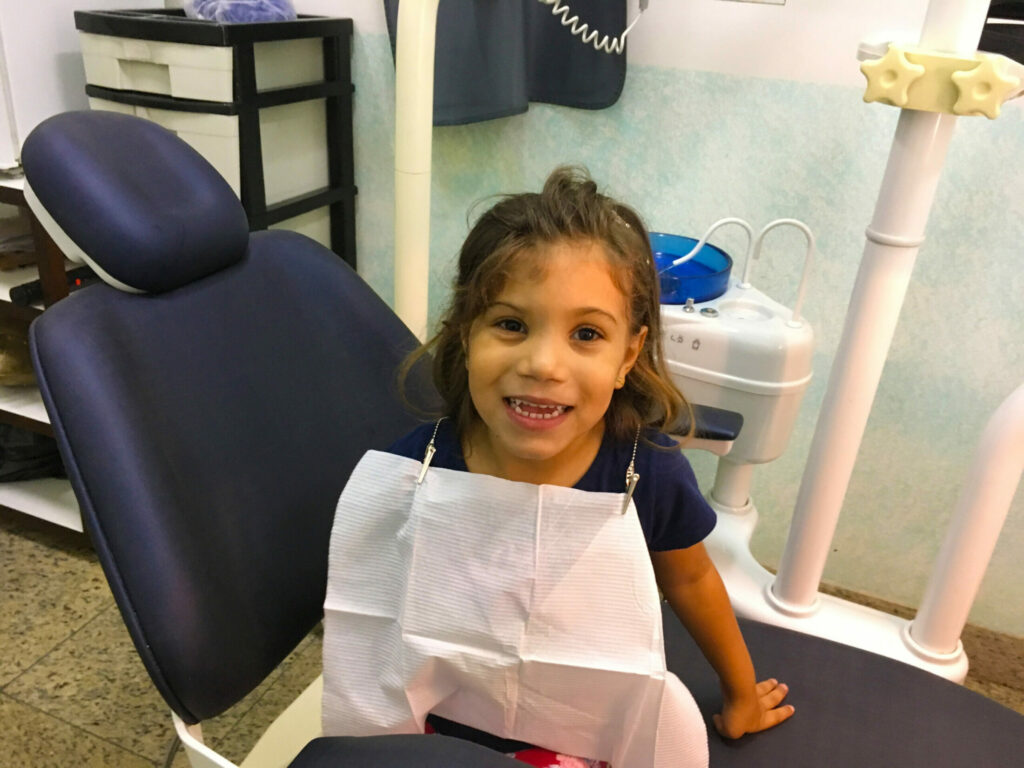
March 20th is World Oral Health Day
03/20/2023
Awareness is needed to reduce the rates of cavities, periodontal diseases and tooth loss in society. The date was established by the International Dental Federation (FDI).
The best way to take care of oral health is through the dissemination of quality information about oral health care.
#health and #oral #hygiene. Encourage good daily habits, in addition to regular visits to the Dentist, which can result in a healthy mouth and teeth and fuller overall health. Oral health is multifaceted and includes the ability to speak, smile, taste and eat food, in addition to transmitting emotions using facial expressions, without discomfort or pain. Oral health influences people’s quality of life.
Oral health not only affects the mouth region, but also issues throughout the body, well-being and even self-esteem.
“Implemented in 2003 to treat needy children and adolescents with heart problems, our Dental Office has a team of volunteer dentists, like the beloved Bartira Volschan, who provide free care to Pro Criança patients, preventing bacteria from reaching the heart” , explains Medical Director Dr Isabela Rangel
How did dental care come about at Pro Criança?
The social project of pediatric cardiologist Dr Rosa Celia was founded in 1996 to care for children with heart disease in socially vulnerable situations. The demand for the free and already excellent service grew every day and we needed more structure for outpatient care.
In 2003 we built the Dental Clinic, with the support of volunteer dentist Pierre Neto Gentil and with the support of Amil. A team of volunteer professionals began intense work with Pro Criança Cardiac patients.
Dental care is essential for children with heart disease to have a bacteria-free mouth. An infection in the mouth can lead to heart disease, leading to prolonged hospitalization. “We treat the child before surgery and teach them how to clean their mouth to avoid the continuation or emergence of dental problems that could lead to cardiological compromise,” stated Dr. Pierre.
In addition to oral hygiene, maintaining good habits is essential to avoid harming the health of your mouth and avoiding problems. And these actions can also help improve health in a broader way. A relevant point is the intake of healthy and nutritious foods. They help prevent the proliferation of bacteria resulting from sugar consumption and also do not contain industrial elements, such as dyes, which can cause complications in the long term. In this sense, reducing the consumption of sweets, excessively fatty dishes and ultra-processed foods in general is a good way to contribute to oral health and the health of the entire body.
To ensure good oral health, #dentistry advice leaves some essential tips for everyday life:
Change your toothbrush every three months;
Brush your teeth well and floss after each meal;
Perform adequate hygiene of teeth, gums and tongue;
Have a healthy diet, with rational use of sugar;
Avoid smoking and consumption of alcoholic beverages;
Go to the dentist regularly.
March 20th is World Oral Health Day

Down Syndrome or Trisomy 21
30/04/2024
Down Syndrome is the best known and most common chromosomal syndrome.
In Brazil, in 2020 and 2021, 1,978 cases were reported at birth. The general prevalence of the disease in our country during this period was 4.16 per 10 thousand live births.
The incidence is higher in older mothers (> 40 years) and is not limited to race or sex. Recent studies show that paternal age also plays an important role in its occurrence.
Down Syndrome is a genetic change that occurs during the formation of the fetus, during the period of cell division. Most cases are caused by cellular non-disjunction, resulting in an extra chromosome.
It is possible to diagnose this syndrome even in the prenatal period, through tests such as USG to evaluate nuchal translucency (measurements > 3mm), fetal echo (due to the presence of cardiac pathologies), karyotype (through amniocentesis or cordocentesis).
Patients with this syndrome present facial features and other characteristic physical changes (short stature, short neck, low ear implantation, short and wide hands, with a single transverse palmar crease, typical eyes, among others)
Hypotonia is observed in newborns and infants.
Hypothyroidism is a common pathology in Down Syndrome and it is estimated that 30% to 40% will present this disease.
About half have a heart defect.
Atrioventricular Septal Defect is the most common heart disease in these patients, but others can be found such as Interatrial Communication, Interventricular Communication, Tetralogy of Fallot and Patent Ductus Arteriosus.
With the aim of raising awareness among the population about the disease and the importance of including everyone in society, the global date chosen was 21/3 as a reference to the genetic fault in pair 21 of chromosomes, which in the case of people with the syndrome, appears with three specimens (trisomy).
Text written by Dr Isabela Rangel
Down Syndrome or Trisomy 21

Protecting the heart during childhood contributes to longevity
30/04/2024
Understand the difference between congenital and acquired heart diseases for health care.
On Cardiologist Day, on August 14, the medical director of Pro Criança Cardiac, cardiologist and pediatrician Dr. Isabela Rangel, warns that cardiovascular diseases are the main cause of death in the world. In Brazil, it is currently responsible for more than 243 thousand deaths, according to the Brazilian Society of Cardiology (SBC). “To achieve longevity, protecting the heart even in childhood is essential. Several scientific studies demonstrate that having a healthy lifestyle from an early age, preserving physical and mental well-being, makes all the difference,” she says.
Heart defects can be congenital or acquired. Congenital are anomalies in the structure and/or function of the heart that occur during fetal life. Its incidence is approximately one for every 100 live births. The diagnosis can be made while the child is still in the mother’s womb. With fetal echocardiography, for example, it is possible to identify structural lesions before birth and, in general, it should be performed between the 24th and 28th weeks of gestation. “These are the most common malformations at birth. They do not have a defined cause and occur through the interaction of genetic and environmental factors. Early diagnosis, advances in surgical and hemodynamic techniques, as well as regular monitoring by a multidisciplinary team enable greater survival and an improvement in the quality of life of these patients”, explains Dr. Isabela.
The work carried out at Pro Criança Cardiac provides the diagnosis, treatment and monitoring of children with congenital heart defects, in addition to providing the necessary support to the family. The non-profit Social Project founded in 1996 by cardiologist Dr. Rosa Celia has already served more than 15,300 children and adolescents with cardiac needs, carried out more than 37 thousand cardiological consultations, 1,700 invasive procedures (heart surgeries and catheterizations – diagnostic and therapeutic), in addition to integrated assistance actions.
Acquired cardiovascular diseases are those that occur throughout life. The risk factors are varied: from family history/genetic background and extrinsic factors such as a sedentary lifestyle, stress, disordered eating, bad habits (such as smoking and alcohol consumption and inadequate sleep). “And when we talk about the main complications for cardiovascular health, obesity, hypertension, diabetes and dyslipidemia are at the top of the list”, she concludes.
Protecting the heart during childhood contributes to longevity
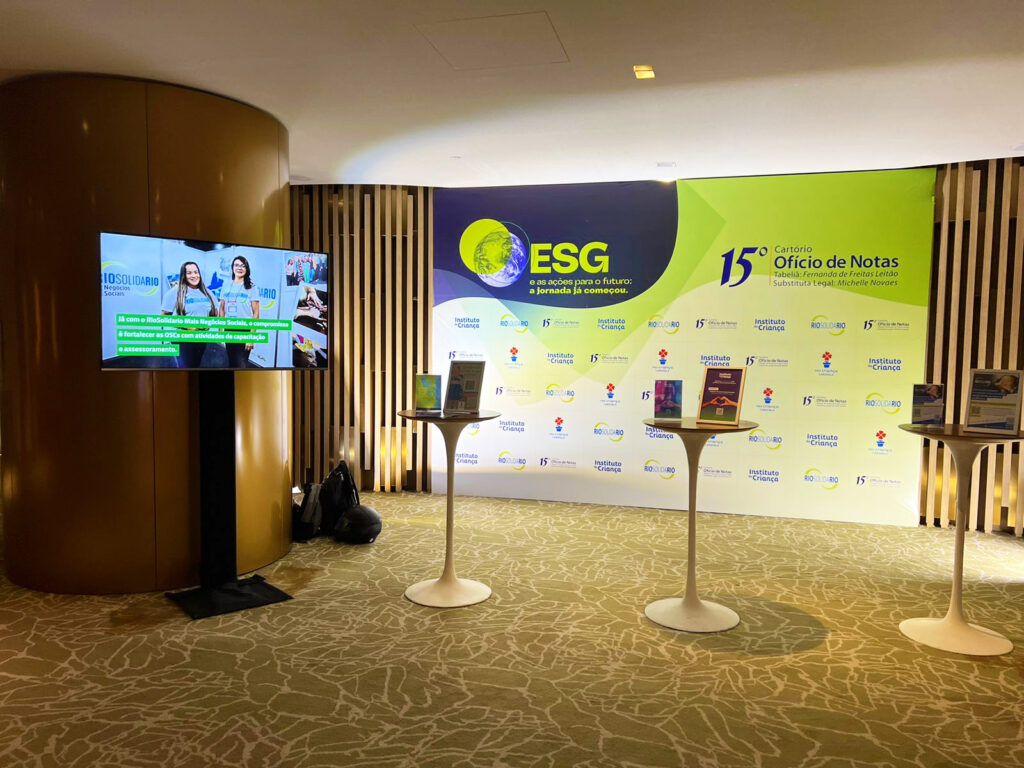
Pro Criança Cardiac participates in the “ESG and actions for the future” meeting
30/04/2024
Pro Criança Cardiac was one of the three social organizations supported by the event “ESG and actions for the future: the journey has already begun”, of the 15th Office, which brought together around 300 guests on August 11th, at the Fairmont hotel, in Copacabana . The meeting was attended by the founder of Pro Criança, Dr. Rosa Celia, promoted a debate on responsible management and was an opportunity to promote the institution to new supporters.
According to Michelle Novaes, CEO of 15º Ofício, and host, together with notary Fernanda Leitão, the proposal was to make people reflect on their direction. Social, environmental and governance practices in the corporate world were topics covered, bringing together Brazilian experts, public authorities, businesspeople and representatives of the Third Sector. Participants: actress Regina Casé, writer Djamila Ribeiro; the secretary of the Civil House, Nicola Miccione; chef Bela Gil; entrepreneur Edu Lyra (Gerando Falcões) and businessman Alfredo Soares, mediated by journalist Giuliana Morrone, with the minister of the Superior Federal Court (STF) Luiz Fux as the final speaker.
To further enhance the initiative, three paintings by the artist Toz Viana, known for his multicolored art, were auctioned in support of Pro Criança Cardiac, RioSolidario and Instituto da Criança.
“The event highlighted emerging trends and changes in the social and environmental landscape. It was great to participate and update ourselves on the latest strategies to deal with constantly evolving challenges and strengthen Pro Criança as a social organization that aligns its activities with principles that are increasingly valued by investors, donors, partners and society in general. This, in turn, contributes to a fairer, sustainable and responsible future”, declared the founder of ProCriança Cardiaca Dr. Rosa Celia.
Pro Criança Cardiac participates in the “ESG and actions for the future” meeting
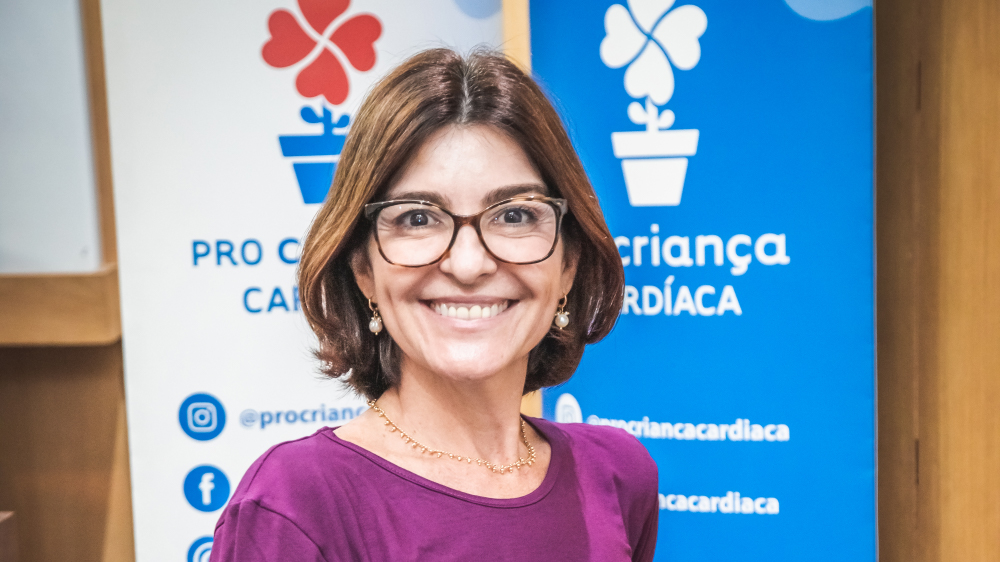
“He who saves one life, saves the whole world”
30/04/2024
By switching, at the last minute, from Law to Medicine on the entrance exam registration sheet, teenager Isabela traced a destiny of great dedication and giving, crowned by the generosity and kindness learned from birth, values transmitted by her parents. “I found myself, it was a good choice. I was the first in my family to become a doctor”, says today Dr. Isabela Rangel, Medical Director of Pro Criança Cardiac, whom our blog honors on Cardiologist Day, August 14th.
Isabela is from Rio de Janeiro. She was born in Rio, near the Engenho Novo neighborhood, in the north of the city. She is the firstborn of Antônio Teixeira and Mercês Marques Teixeira, Portuguese immigrants who met in Brazil. The couple’s second daughter is named Ana Lúcia. “I had a very happy and very united childhood, a family with many cousins. Sundays were always expected, so everyone could meet up”, says the doctor.
Family ties remained strong. “I have a very close bond with my parents, we are always together. Just like my husband has with his parents. On weekends, we usually take turns and spend one day at my in-laws’ house, another with my parents. I also get along very well with my brothers-in-law. Furthermore, I currently see my father every day in the morning, because I am going to examine him and, of course, also play my role as a daughter, since he is 94 years old and has some health issues.
Her husband, Cláudio, is also a doctor. They met as soon as Isabela graduated. They have been together for 29 years and have three children, all adults, today: Juliana, 27 years old; Pedro, 22; and Gabriela, who turns 21 in November and chose her parents’ career.
And how did Dr. Isabela arrive at Pro Criança?
Working in a Neonatal ICU, she had her first contact with Dr. Rosa Célia. “She was going to give opinions in this ICU and I liked watching her do the exams, outline the course of action… That was when she invited me to join a group of intensive care doctors who would work in the post-operative period of children’s heart surgeries at the Pró-Cardiaco Hospital. To take on the new position, I left Casa de Saúde São José and Cardiobarra, where I worked.”
Then, a new invitation was made and accepted: to be part of the team at Dr. Rosa’s private practice. “I helped the children so that they would be as healthy as possible for heart surgery. I became enchanted by the area and, with a lot of support from Dr. Rosa, I decided to do a new specialization, this time, three years of Pediatric Cardiology at Hospital Pedro Ernesto, at the service of Dr. Luiz Alberto Christiani”, she recalls.
And he adds: “I participated in the creation and construction of Pro Criança Cardiac, since Dr. Rosa began dreaming of not only treating, but operating on, needy children whose families came to her office looking for help. I am very honored to have followed all of this.”
And ping-pong time has arrived! Let’s ask Dr. Isabela…
What is your favorite movie?
A film impacted me a lot. It’s “Schindler’s List” (Steven Spielberg/1993). It shows how, in the midst of so much cruelty, it is possible to find a lot of love. There is a quote in this film that also stuck with me, towards the end, when the main actor receives a ring on which is inscribed “He who saves a life, saves the whole world”. I believe in this, in the chain of good that is formed when a life is saved. The people around are infected by your gesture and commit to saving more lives.
I would also like to highlight one of my favorite books. It’s called “Night Train to Lisbon” (philosophical novel by Pascal Mercier published in 2004). It’s a shame the film doesn’t even come close to the book…
What food makes you sigh?
I love chocolate, it’s my weakness, but not just any chocolate. It’s one to taste.
In your free time do you like….
Read good books. I read a lot. That’s when I relax. Even going to the bookstore and smelling that book smell I like. I also love traveling and, for longer trips, the preparation is already a super program: studying customs, typical foods, cool places… I also really like taking short, last-minute trips, when we don’t work on the weekends. Going to the cinema is also a habit, but with the pandemic I never went again.
What person do you admire most?
My parents. I admire them so much for the courage they had to leave their country, still young, without knowing what they would find. They taught me the great values of life, from an early age they showed the importance of being kind, generous, perhaps even because of all the difficulties they had when they arrived here, a different culture, I don’t know if that’s why they always tried to help others. My sister and I saw and lived with their generosity. I hope one day I can be, for my children, what they are for me.
What dream of yours has already come true?
Discover Boston’s Children Hospital, in the United States, a reference in pediatric cardiology. I always wanted to go there, it was a huge accomplishment. The way the trip happened was also exciting, as I competed with other doctors and was approved for the visit.
What dream do you want to fulfill?
I want to be able to help Pro Criança become a reference in pediatric cardiology at a national and international level. This is a professional and personal dream, after all the institution has been in my life for so long… As a person, Isabela, I think I am already well fulfilled. With family, with work.
What do you like most about yourself?
My mother side.
What phrase inspires your life?
The Dalai Lama says: “Give those you love wings to fly, roots to return to, and reasons to stay.” I think this is the family basis. For those who are mothers, this is very important, knowing how to love without suffocating their children, making them grow within your love. It is necessary to give people the freedom to make their own choices and, at the same time, feel safe that they have a real home there. If you always do this with your friends and family you will always be surrounded by love.
Helping others is…
It’s essential.
Working at Pro Criança is…
Gratifying.
He who saves one life, saves the whole world

Doctors from Pro Criança talk about “The social impact of heart disease” in a free and hybrid event
30/04/2024
DR. ROSA CELIA, DR. ISABELA RANGEL AND THE SURGEON DR. ANDREY MONTEIRO CLARIFIES PARENTS AND SOCIETY IN GENERAL ABOUT INTRACARDIAL MALFUNCTION WHICH AFFECTS MORE THAN 250,000 CHILDREN PER YEAR IN BRAZIL
More than 50% of newborns who would need surgery to correct congenital heart disease are left without care in Brazil, according to estimates from the São Paulo State Cardiology Society. In times of pandemic, this percentage of non-attendance could have reached 70%. The country currently records around 257 thousand new cases of congenital heart disease per year.
Taking advantage of the movement around Congenital Heart Disease Day (12), and with the aim of mobilizing future mothers and fathers and society as a whole, Pro Criança Cardiac promotes an enlightening conversation on the topic on June 13, Monday. fair, at 3pm, with Dr. Rosa Celia, its founder and president, Dr. Isabela Rangel, medical director of the institution, and pediatric heart surgeon Andrey Monteiro.
The event is part of the Pro Criança Humanization Cycle and the format is hybrid: in person and open to the public, in the auditorium at Rua Dona Mariana, 40, in Botafogo, and online with live broadcast on the YouTube channel.
Causes
According to the medical director of Pro Criança Cardiac, Dr. Isabela Rangel, the causes of cardiac malformations are not well defined and include several factors, such as: use of some medications or drugs, maternal diseases such as lupus and diabetes, infections such as rubella – which can interfering with the formation of the fetal heart in the first weeks of pregnancy – in addition to a history of heart disease in previous pregnancies and genetic inheritance.
Risk factors
One of the factors for the development of congenital heart disease is genetic inheritance. Mothers and fathers with this history have a greater chance of having a baby with some type of heart disease. This also happens when the couple has already had a baby with some malformation.
Genetic syndromes are another factor associated with intracardiac malformation, such as Down Syndrome, in which a percentage of patients may have an atrioventricular septal defect, among other heart diseases. Advanced maternal age is also considered a risk factor for congenital heart disease.
Is there prevention?
Dr. Isabela clarifies that there are no ways to prevent congenital heart disease, but it is important that women, before becoming pregnant, seek out an obstetrician to carry out a clinical assessment, see what their real health status is, whether they have any vitamin deficiencies and find out which medications you can or cannot use during pregnancy.
It is also important to check the vaccination schedule and whether she needs to have any vaccinations before becoming pregnant. Another important point is eating habits. “Women need to have a balanced diet and not use illicit drugs, not smoke and not drink alcohol, in order to guarantee the adequate development of the fetus”, she highlights.
Diagnosis
Early diagnosis is essential, especially in the most serious heart diseases, according to the medical director of Pro Criança. Fetal echocardiography is a method capable of identifying structural lesions before birth and, in general, should be performed between the 24th and 28th week of pregnancy.
The little heart test is a simple exam, carried out in the maternity ward on newborns and capable of early detection of hypoxemia that characterizes clinical heart diseases.
“Taking into account that one in every 100 babies born will present some type of congenital heart disease, the detection of intrauterine heart disease allows the medical team to monitor the entire development of the fetus, scheduling the birth in a health unit that has the necessary structure. for the conduct and clinical treatment of the baby, if he has a heart disease that requires more immediate intervention”.
The doctor draws attention to “one of the major obstacles that delay diagnosis”: the lack of information among families about the existence of heart disease in children. “Pediatric monitoring of babies is essential, as changes may be identified during routine consultations that suggest heart disease, and referral to a specialized center may be indicated,” she says.
Treatment
In addition to surgery, nowadays, there is the option of a less invasive procedure called therapeutic cardiac catheterization, to treat some types of heart disease.
The social impact of heart disease
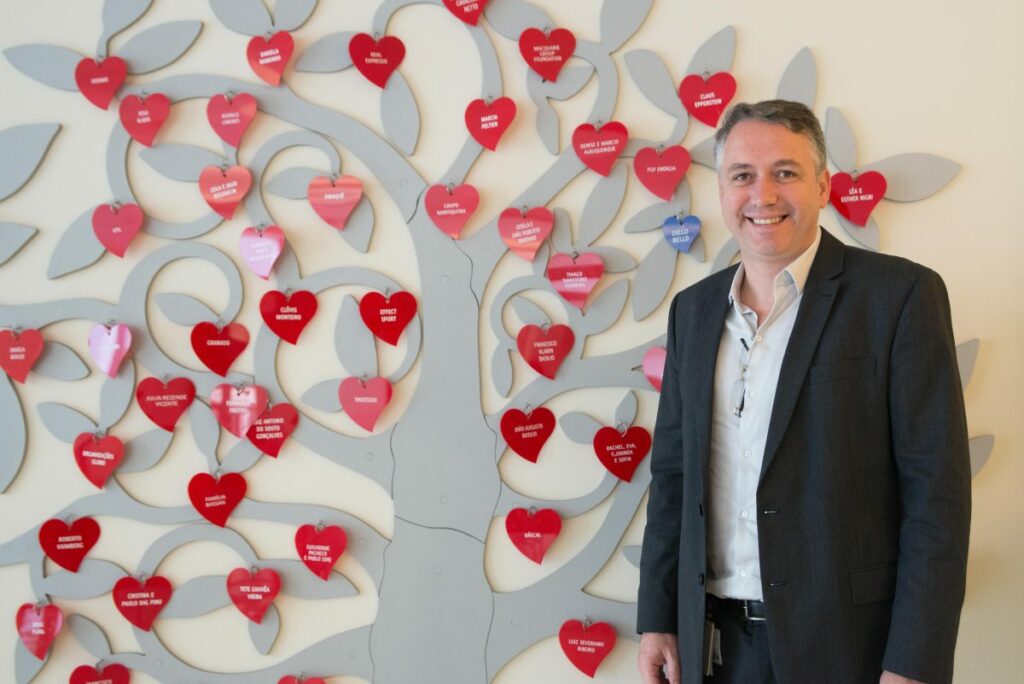
National Congenital Heart Disease Day draws attention to the need for preventive exams
30/04/2024
Celebrated on June 12th, National Congenital Heart Disease Awareness Day has been gaining more expression each year due to the importance that the date has for society in general. In Brazil, around 50% of patients do not undergo adequate treatment for these anomalies due to lack of diagnosis or access to a center capable of carrying out the treatment.
With the improvement of care in the perinatal period, infectious-parasitic diseases and preventive measures against child malnutrition, congenital anomalies became the second main cause of child mortality, second only to prematurity.
Among these anomalies, the most common, and with the highest mortality, are congenital anomalies of the cardiocirculatory system: around 8 to 10/1000 live births are compromised by some type of them. Approximately 20% of cases end up resolving spontaneously or present a small degree of hemodynamic compromise, that is, with little clinical repercussion, few and well-tolerated symptoms.
In the State of Rio de Janeiro, two thousand children are born every year with some type of heart disease. Of these, 40% will require intervention within the first year of life.
Improving care for children with heart disease has a direct impact on reducing child mortality. Therefore, the importance of early diagnosis. Fetal echo during pregnancy and the oximetry test are non-invasive tests that can identify congenital heart defects early.
Interventricular communication, in which the child presents increased pulmonary blood flow and symptoms of heart failure, is the most common congenital heart disease. Among the cyanotic ones, the one with the highest incidence is Tetralogy of Fallot.
Some heart diseases require surgical treatment in the neonatal period, with emphasis on transposition of the great vessels and hypoplasia of the left heart. In these cases, if not treated within the appropriate period, mortality reaches more than 90% within the first year of life.
With advances in current care, around 85% of patients with congenital heart disease reach adulthood, around 40 years of age.
Surgical treatment can be corrective, but in some cases correction is impossible. In these situations, so-called palliative surgeries are performed, with the aim of improving symptoms, but maintaining an altered cardiac anatomy. Some patients require three or more staged surgeries throughout their lives to complete treatment.
Just like adults, children with advanced heart failure may be candidates for a heart transplant. In cases of clinical suspicion of congenital heart disease, a pediatric cardiologist should be sought immediately and, whenever any intervention is necessary, it is important that it is carried out by a team and center specialized in this area.
Dr. Andrey Monteiro is a pediatric cardiac surgeon at Pro Criança Cardiac and President of the Department of Pediatric Surgery at the Brazilian Society of Cardiovascular Surgery.
National Congenital Heart Disease Day draws attention to the need for preventive exams

Cardiovascular disease: prevention begins in pregnancy and continues into childhood
30/04/2024
Today, August 8th, National Day to Combat Cholesterol, we share an extremely important article for fathers, mothers and caregivers of children.
The person signing is the Medical Director of Pro Criança Cardiac, Dr. Isabela Rangel.
CARDIOVASCULAR DISEASE
In the 1980s, pioneering work showed that, in adverse conditions such as lack of nutrients and energy, changes in the development of the fetus could program it to develop heart disease when it reaches adulthood. It is known that both malnutrition and the opposite (overeating by the mother) during pregnancy and lactation can affect children. For example, children of obese mothers may be at greater risk of becoming obese and diabetic.
Inadequate diet, physical inactivity and smoking are the factors with the greatest potential to be addressed. Several pathological studies have demonstrated the presence of lesions in the arterial wall already in the first year of life. Therefore, prevention of coronary disease must begin in childhood, as habits acquired during this period tend to persist into adulthood.
It is important to modify the habits of children and adolescents who have dyslipidemia and/or a positive family history of coronary disease, establishing a healthy lifestyle with a balanced diet and regular physical activity.
The diet must be individualized, avoiding transsaturated and saturated fats and encouraging the intake of greens, fruits and vegetables.
Practicing physical exercise regularly reduces weight, as well as other risk factors for coronary disease.
Educational measures must be aimed not only at children and adolescents but also at their families.
STICKY NOTES
Healthy eating and physical activity habits begin in childhood. To acquire them in adult life will require much more effort. Adults are responsible for the food that reaches children. It is important to pay attention to what you put in your supermarket shopping cart. It is unlikely that a child will swap the stuffed biscuit for grated carrots.
Among all risk factors, obesity appears as the most important. Its prevalence has been increasing alarmingly in lower socioeconomic classes. Some cases will end in surgery to reduce the stomach, where in reality one disease is exchanged for another.
Discipline and example in the child’s education, reducing the risk factors for cardiovascular disease, will be a guarantee so that the child, in adult life, spends money on leisure travel, for example, and not on medicines and hospital stays.
Let’s take better care of our children!
Dr Isabela Rangel
Medical Director of Pro Criança Cardiac
Cardiovascular disease: prevention begins in pregnancy and continues into childhood

Children’s arterial hypertension: rapid and silent escalation
30/04/2024
With the increase in Arterial Hypertension in the child population, Pro Criança Cardiac warns of the importance of measuring blood pressure in pediatric consultations, in line with the Brazilian Society of Pediatrics.
Studies show that primary Arterial Hypertension (AH) has been increasing in recent years in children over six years of age who are overweight, obese, or have a positive family history of the disease. Pediatric cardiologists at Pro Criança Cardiac have confirmed this increase among patients treated by the institution and warn of the importance of measuring blood pressure (BP) at each pediatric consultation, as hypertension can often go unnoticed. In general, hypertensive children and adolescents are asymptomatic. Only a few present with headaches, irritability and sleep disturbances.
The Institution echoes the Guidance Manual “Arterial hypertension in childhood and adolescence” published in April 2019 by the Department of Nephrology of the Brazilian Society of Pediatrics. In the document (http://bit.ly/2vXQ802), the SBP says that “the interest in studying AH in children and adolescents is old, however, even today, the diagnosis has been made late, due to the lack of inclusion of blood pressure measurement as a routine part of the child’s physical examination”.
Dr. Isabela Rangel, Medical Director of Pro Criança Cardiac, highlights the importance of measuring blood pressure at each medical appointment, especially in the case of children who are obese, or who take medications that can increase BP, who have kidney disease, who are diabetic or with a history of aortic coarctation. “The pediatrician should also take this measurement in the neonatal period, to rule out heart and kidney diseases, among others,” she highlights.
“We have been receiving more and more patients with high blood pressure and the majority without a secondary cause. We attribute the increase in primary AH to the increasing sedentary lifestyle in the pediatric population, inadequate nutrition, associated with a positive family history of hypertension and increased stress”, says Dr. Rosa Celia, founder and president of the institution.
PRIMARY AND SECONDARY ARTERIAL HYPERTENSION:
KNOW THE DIFFERENCE
Primary AH is one that affects the majority of the population – including children and adolescents – and has no identifiable medical cause. Most of the time, it is due to lifestyle, which includes a high intake of salt and calories, factors that lead to excessive weight or obesity, directly related to elevated blood pressure (BP).
Secondary hypertension in children is caused by identifiable diseases, including renal artery thrombosis, renal artery stenosis, congenital renal malformations, aortic coarctation, bronchopulmonary dysplasia, renal parenchymal diseases and primary arterial hypertension.
WHAT ARE THE BLOOD PRESSURE VALUES IN CHILDHOOD?
The analysis of blood pressure in childhood uses as a reference normal values of systolic and diastolic blood pressure in children and adolescents of the same age, sex and height percentile. In childhood, a percentile above 95 is a sign of established hypertension.
Children's arterial hypertension: rapid and silent escalation

Interatrial Communication – CIA
30/04/2024
Interatrial Communication is a type of congenital heart disease and among the diseases resulting from abnormalities in the structure of the heart, developed during the embryonic phase, it is one of the most frequent. According to the North American Centers for Disease Control and Prevention, one in every 800 live births has CIA.
To understand the problem, it is important to understand how the heart and its four cavities – the two atria and two ventricles – function normally. Although they beat together, the right and left sides of the heart do not communicate. The right atrium only communicates with the right ventricle and the left atrium only with the left ventricle.
In Interatrial Communication, the two atria communicate. As a result, the right side of the heart (responsible for receiving blood from the body and sending it to be oxygenated in the lungs) also ends up receiving the already oxygenated blood that comes from the left side. As a result, the cavities on the right side increase.
Often, a person with Interatrial Communication lives years without experiencing any symptoms. In childhood or adolescence, you may even realize that you don’t perform optimally in more intense sports, for example, but nothing that catches your attention. Depending on the size of the ASD, there may be symptoms such as tiredness with small and medium efforts.
CIA is the most common congenital heart disease in adults. The diagnosis is made when the patient goes to the doctor due to symptoms or it can be diagnosed, by chance, when they go for a check up, for example, to practice physical activities.
Like most congenital heart defects, Interatrial Communication does not have a defined cause. It is an abnormality that occurs sporadically during the formation of the embryo.
The diagnosis is made through an echocardiogram that demonstrates the intracardiac defect.
The treatment is to “close” the communication between the two atria, occluding the hole that allows blood from both sides of the heart to mix, overloading one side.
A few years ago, the treatment was surgical, opening the patient’s chest to correct the communication between the atria. Currently, most cases can be treated via cardiac catheterization.
The hemodynamicist introduces a catheter, guided by image, into the heart and reaches the hole where he will place a small prosthesis to seal the communication between the atria.
Access the illustrative video: https://youtu.be/inE9kB_eJ7I
Dr. Isabela Rangel
Medical Director of Pro Criança Cardiac
Interatrial Communication – CIA
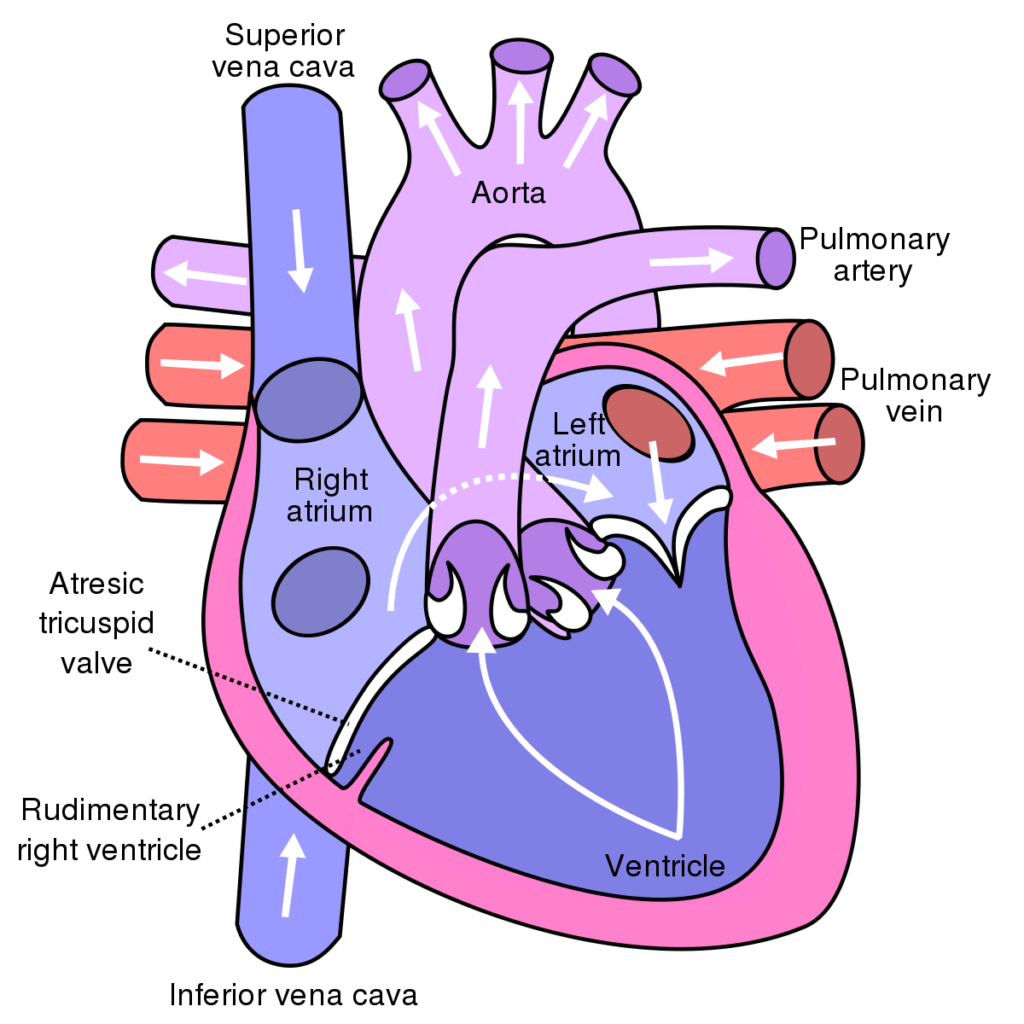
Does the baby have Tricuspid Atresia?
30/04/2024
Tricuspid atresia is a type of congenital heart disease resulting from tricuspid valve agenesis (absence of communication between the right atrium and right ventricle). The incidence varies from 1 to 3% among all heart diseases. Associated cardiac anomalies are common to tricuspid atresia and include atrial septal defect, interventricular septal defect, pulmonary valve stenosis, transposition of great arteries, patent ductus arteriosus, among others.
Cardiovascular anomalies associated with Tricuspid Atresia can produce decreased, normal or increased pulmonary blood flow, affecting physiology and clinical manifestations and the type of treatment. Babies with reduced pulmonary blood flow have cyanosis (bluish color), which can be evident in the first days of life. Those who have defects associated with increased pulmonary blood flow will have signs of heart failure.
Diagnosis is made through color Doppler echocardiography. The exam evaluates the anatomy of the heart and vessels, as well as their function. Currently, with fetal echocardiography, the diagnosis can be made in utero (before the baby is born).
Detecting the disease early allows the medical team to monitor the entire development of the fetus and plan delivery in a health unit with an adequate structure for management, clinical treatment and, if necessary, surgical intervention in the first days of life.
The treatment of Tricuspid Atresia is surgical and the technique used or the need for palliative surgery depends on the associated anomalies.
Does the baby have Tricuspid Atresia?

How to treat an arrhythmia
30/04/2024
Cardiac arrhythmias are characterized as changes in the heart rhythm (“beats”). Diagnosis is made through ECG and Holter. Echocardiography is important for evaluating associated structural heart diseases and for analyzing ventricular function. Initial treatment is generally medication and the choice of drug depends on each case. However, some patients require invasive treatment such as radiofrequency ablation (curative treatment in many cases or even the implantation of pacemakers and/or defibrillators.
The electrophysiological study, as well as ablation, is performed using catheters, without the need to open the chest to access the heart. These catheters are positioned at the focus of the arrhythmia and an energy, called radiofrequency, is used to heat the tissue and “burn the location of the focus”, eliminating the arrhythmia. There is also the cryoablation technique, in which the cooling of the tissue promotes the blockage of the arrhythmia.
How to treat an arrhythmia

Preventive care at the center of the debate for Diabetes Awareness Day
30/04/2024
The date is celebrated annually on 14/11 and raises awareness about the pathology that is growing in Brazil
World Diabetes Awareness and Prevention Day, celebrated annually on 14/11, aims to raise awareness of the importance of carrying out routine exams, which help to identify the disease, in addition to remembering the importance of healthy practices that prevent its development.
In Brazil, diabetic rates grow annually, according to the ninth edition of the Diabetes Atlas, produced every two years by the International Diabetes Federation (IDF) and which examines the behavior of 138 countries.
Type 1 diabetes – when the pancreas stops producing the insulin needed to use glucose – is one of the most common chronic diseases in children and occurs in one in every 350 children up to the age of 18.
Studies indicate that those over five years of age have been the main group affected lately. Type 2 diabetes, on the other hand, has higher rates between the ages of 15 and 19 and is associated with overweight and obesity; excess sugar and fat intake; sedentary lifestyle; family history and genetic inheritance, in addition to stress; alcoholism; pre-diabetes; previous gestational diabetes; systemic arterial hypertension and history of previous cardiovascular disease.
One of doctors’ concerns is how to protect diabetics from cardiovascular complications. According to research from bodies such as the Brazilian Diabetes Society (SBD), the disease is considered one of the biggest risk factors for heart problems. Therefore, the importance of preventively protecting heart patients treated by Pro Criança Cardiac.
According to the medical director of Pro Criança Cardiac, Dr. Isabela Rangel, diabetes can be a silent disease and, if periodic medical examinations are not carried out, the person may not be aware that they have this condition. “I believe that the delay in diagnosing the disease and the lack of understanding on the part of the family and the patient themselves about the complications that can occur without adequate treatment are the main difficulties in reducing cardiovascular complications, among others”, he reinforces.
Preventive care is part of the routine of doctors and patients at Pro Criança, as well as multidisciplinary care: the Nutrition team carries out assessments and indicates, case by case, the quantity and desirable sources of calories for patients with cardiovascular diseases and overweight . This practice also helps the family to maintain healthy lifestyle habits.
Dr. Isabela Rangel draws attention to the need for a balanced diet, regular physical exercise and periodic monitoring of blood glucose levels and taking medication when prescribed by the doctor.
Diabetes Awareness Day
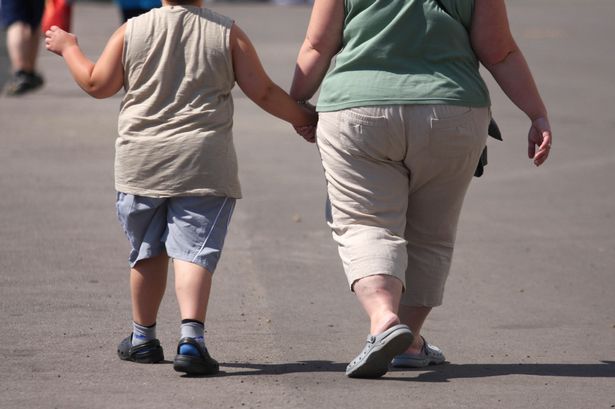
Is your child or family overweight?
30/04/2024
In 2020, the World Obesity Federation changed World Obesity Day to March 4th. Pro Criança Cardiac takes advantage of the approaching date to bring information and tips to the families of children and adolescents served by the institution.
One in three children, between five and nine years old, is overweight in Brazil, according to the Brazilian Institute of Geography and Statistics (IBGE). And, worldwide, the number of obese children is expected to reach 75 million in 2025, according to the World Health Organization (WHO).
This is very alarming data, as an obese child can more easily become an obese teenager and adult. And an obese adult is at risk of having a shorter life due to diseases such as hypertension, diabetes, breathing difficulties, high cholesterol and cardiovascular disease.
We must also take into account the social issue, bullying, which in certain cases worsens the situation of overweight and obesity. With shame, the child or teenager may want to isolate themselves and eat even more, as a way of compensating for frustrations. It is important to note that the quantity of food does not always cause overweight, but the quality of high-calorie foods consumed daily.
Let’s highlight some reasons that contribute to the growth of obesity in the Brazilian population, especially in children:
– Industrialized snacks, such as sandwich cookies, chocolates and snacks, most of which contain a lot of sodium, preservatives and sugar.
– Frequent trips to fast food restaurants.
– Little or no daily physical activity, such as cycling, a walk in the park, walking the dog, games that move the body.
– A lot of time spent on cell phones and computers.
– Family eating habits. As we well know, there is no point in wanting the child to eat well, with balance, if the people living in the house do not set an example.
– Emotional, genetic, physiological, metabolic issues.
– Inadequate foods to complement the baby’s breastfeeding up to two years of age.
If you have difficulty changing the diet in your home, seek help from a nutritionist, a professional recommended to help you and your family in this important mission. Preventing obesity in children early is an act of love and responsibility. Take care of yourself and your family too.
Is your child or family overweight?

How to care for baby teeth?
30/04/2024
“Care for the baby teeth of a child with heart disease is the same as for the baby teeth of a child without any heart problems”, explains Bartira Volschan, a pediatric dentist who has been part of the team of volunteer dentists at Pro Criança Cardiac for over 15 years. years. But, as heart disease can be aggravated by a dental problem, parents’ attention to the hygiene and nutrition of a child with heart disease needs to be doubled. Infection in a baby tooth with deep cavities can be an infectious focus and spread through the bloodstream, causing consequences for the child’s general health, even more so in children with heart problems.
It is necessary to take this reality into consideration when, to please the child, parents end up giving bottles and sugary snacks instead of normal food and are not so demanding when it comes to hygiene so as not to displease them, or to prevent them from crying.
We looked for Dr. Bartira to talk specifically about baby teeth because many people believe that taking care of them is not that necessary, as they will fall out anyway. But this reasoning can harm a child’s health and their adult life, did you know? Baby teeth are important for performing all the functions of speech and chewing food, and also for maintaining adequate space for the arrival of the permanent tooth, as it acts as a guide for it.
“What parents and families do at home to take care of their children’s teeth is much more important than what I do in the office. I always tell them that”, says the dentist, as cavity lesions can become chronic. But, to achieve this, it is very important that the habits that led to cavities are changed.
Let’s learn?
CARE OF BABY TEETH
FOOD
According to Dr. Bartira, sugar is a cariogenic food, that is, it causes cavities, and must be controlled. In very young children, the biggest source of sugar comes from drinking bottles, which contain sugar, honey and sweetened flour products. And, even if the child continues to breastfeed, but eats cookies and drinks sugary juices, they may get cavities. Until the age of two, sugar consumption should be avoided. Instead, the family should offer fruits to the child, which have lots of fiber and encourage chewing, helping the teeth to develop.
Furthermore, when a child chews, it stimulates the production of saliva, which is a fluid in our body with enzymes and proteins capable of fighting bacteria that cause cavities. Hard foods are also welcome, as in addition to promoting chewing and producing more saliva, friction with the teeth helps to clean them. “In general, in addition to contributing to the balance of oral health, a balanced diet is essential for the complete development of the child”, highlights Dr. Bartira.
HYGIENE
First teeth in babies
When there are no teeth in the mouth, it is unnecessary to clean babies’ mouths after feedings. This is because, when the child is born, its oral flora (microorganisms in the mouth) are new. The more manipulation there is, the more it can facilitate the entry of opportunistic fungi. Cleaning starts with the first teeth. If this habit is postponed, when the child is two years old they will resort to brushing, as it will be strange for them.
How to make?
Hygiene of the first teeth can be done with gauze wrapped around the finger or with a separate cloth for this purpose. “Children find it more enjoyable when we moisten them with ice-cold filtered water,” says Dr. Bartira. An important detail is the facial expression of the person performing this cleaning. “It is very important that the child associates it with a pleasant habit, not with aggression, so smile at him. Cleaning can be done after bathing, on the changing table. When she gets older, giving her a brush to play with is a way of creating a relationship with the object (and having another one that isn’t all bitten off to do the hygiene itself)”, highlights the dentist.
Those responsible can follow a cleaning order so as not to forget any teeth: start with the lower teeth and then move on to the upper teeth. The front teeth are called incisors (central and lateral) “For these eight teeth, cleaning with gauze is sufficient. In the case of molars, the back teeth, which are thicker and have little scratches on the chewing part, the gauze is not as effective and the introduction of the brush is important. Even with the aim of creating an educational process: he ate, he got his teeth dirty, so let’s clean it”, he emphasizes.
oothpaste?
Dr. Bartira advises that, if there is sugar in the diet, the fluoride paste needs to be introduced into the child’s hygiene routine (more than 1000ppm of F, look at the packaging and check if the amount of fluoride is recommended). In what quantity? For children who do not know how to spit, under three years of age, just the equivalent of a grain of raw rice, twice a day. It’s really very little, because the fluoride contained in the pastes is a medicine and the child should not ingest it in large quantities. A guardian must put the amount of paste on the brush for the child.
“Excess foam makes you feel clean, but what really cleans is the brush. You need to count to 10 for each side of the tooth, as the bacteria produce a powerful glue that only comes out with good brushing”, highlights the pediatric dentist. From the age of three, when the child learns to spit, the amount of 1 bean is offered.
From the age of four…
At this stage, children begin to be more interested in brushing their teeth alone, so parents can encourage this independence as long as it is supervised by a responsible person. Remember that children acquire the motor skills for proper brushing movements at the age of six or seven, as it is the same skill for writing. It is important to highlight that parents must be responsible for performing oral hygiene at least once a day.
And the dental floss?
The time to introduce dental floss is when the teeth come together. “If you are a baby and have teeth close together, yes, you need to floss your teeth. Cavities that occur between the teeth are difficult to diagnose clinically, in many cases only with radiography to check, and it is tedious to restore, so it is good to prevent it from happening”, advises Bartira.
The ideal is to use it every night, otherwise the bacterial plaque can become thick, produce acid and corrode the tooth, which is how cavities appear. If your child consumes a lot of sugar, then you need to thread it every day. It is worth remembering that the ability to floss begins around 10 years of age.
Did you like it?
Dr. Bartira gave us a real lesson, do you agree?
Recommend to other mothers, other families!
Let’s, together, take care of our children’s oral health and help ensure smiles with perfect teeth in the future.
How to care for baby teeth?

Children and adolescents also need to measure their blood pressure during medical appointments
30/04/2024
ON THE NATIONAL DAY TO PREVENT AND COMBAT ARTERIAL HYPERTENSION, TODAY, APRIL 26, PRO CRIANÇA DRAWS ATTENTION TO THE INCREASE OF THE DISEASE AMONG CHILDREN
Did you know that, in general, hypertensive children and adolescents are asymptomatic? Only a few present with headaches, irritability and sleep disturbances. Did you also know that studies show that primary Arterial Hypertension (AH) has been increasing in recent years in children over six years of age who are overweight, obese, or have a positive family history of the disease?
Therefore, in line with the Brazilian Society of Pediatrics (SBP), the pediatric cardiologists at Pro Criança Cardiac take advantage of the attention focused on the topic this April 26th, National Day for the Prevention and Combat of Arterial Hypertension, to warn about the importance of measure blood pressure (BP) at each visit. The SBP says that, “even today, the diagnosis has been made late, due to the lack of inclusion of blood pressure measurement as a routine in the child’s physical examination”.
Dr. Isabela Rangel, Medical Director of Pro Criança Cardiac, highlights that the procedure is even more fundamental in the case of obese children; or who take medications that can raise blood pressure; who have kidney disease; who are diabetic or have a history of aortic coarctation. “The pediatrician should also take this measurement in the neonatal period, to rule out heart and kidney diseases, among others,” she highlights.
“We have been receiving more and more patients with high blood pressure and the majority without a secondary cause. We attribute the increase in primary AH to the increasing sedentary lifestyle in the pediatric population, inadequate nutrition, associated with a positive family history of hypertension and increased stress”, says Dr. Isabela.
PRIMARY AND SECONDARY ARTERIAL HYPERTENSION:
KNOW THE DIFFERENCE
Primary AH is one that affects the majority of the population – including children and adolescents – and has no identifiable medical cause. Most of the time, it is due to lifestyle, which includes a high intake of salt and calories, factors that lead to excessive weight or obesity, directly related to elevated blood pressure (BP).
Secondary hypertension in children is caused by identifiable diseases, including renal artery thrombosis, renal artery stenosis, congenital renal malformations, aortic coarctation, bronchopulmonary dysplasia, renal parenchymal diseases and primary arterial hypertension.
WHAT ARE THE BLOOD PRESSURE VALUES IN CHILDHOOD?
The analysis of blood pressure in childhood uses as a reference normal values of systolic and diastolic blood pressure in children and adolescents of the same age, sex and height percentile. In childhood, a percentile above 95 is a sign of established hypertension.
Measure blood pressure is important

Anitta & Sol de Janeiro donate R$270,000 to Pro Criança
01/12/2022
In the final minutes of 2021, a large donation entered the Pro Criança Cardiac account. In partnership with singer Anitta, the iconic multinational brand Sol de Janeiro, inspired by the beauty of Brazil, made a donation of R$ 270 thousand, raised at the launch of “Anitta & Sol de Janeiro Perfume Mist”, a body fragrance with notes of nectar of passion fruit and pink patchouli, a product co-created with the artist.
The act of love, generosity and social responsibility will make it possible to carry out invasive procedures to save the lives of five children in 2022.
On her networks, at the turn of the year, the megastar said that “one of the most incredible things that happened this year was the partnership with Sol de Janeiro to create this delicious perfume. Thanks to this collaboration, we were able to help provide care to children at Pro Criança Cardiac, in my homeland. This post is a thank you to all of you who joined us and contributed in some way to this cause.”
“I always knew that an alliance between Sol de Janeiro and Anitta would be something powerful and beautiful to see, despite not imagining the volume of resources we would be able to raise. Uniting the power of the two brands with the aim of contributing to a greater cause in Brazil was a dream that became a goal. I feel immense happiness knowing that we are helping to save these children’s lives. Congratulations Pro Criança!”, says Wallace Fortes, Creative Director of Content at Sol de Janeiro and leader of the brand’s social responsibility projects in Brazil.
“It was the biggest surprise of 2021, both in terms of value and because it happened just before the year ended. Our deepest gratitude to Sol de Janeiro and our redoubled admiration for Anitta. It will be a great pleasure to welcome you to our home!”, celebrates the executive director of Pro Criança, Mitzy Cremona.
Sol de Janeiro products are sold in Brazil exclusively by Sephora (https://cutt.ly/EUCUUez)
Sol de Janeiro x Pro Criança Cardíaca
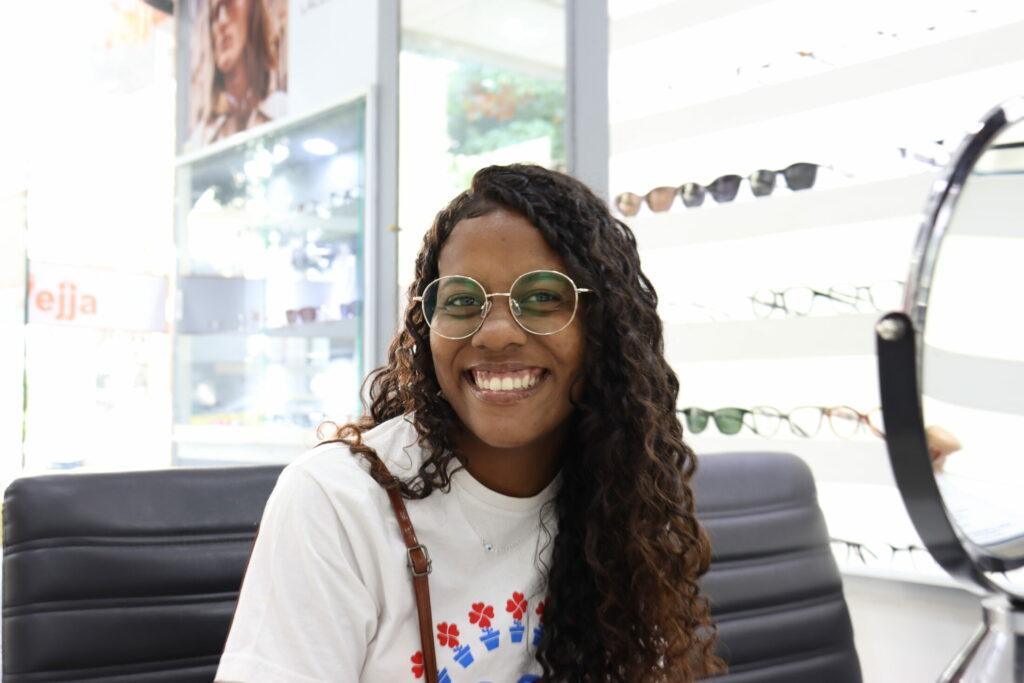
Pro Criança Cardiac opens Ophthalmology service
30/04/2024
PARTNERSHIPS WITH OPHTHALMOLOGICAL CLINICS AND OPTICAL OPTICS WILL PROVIDE FREE CONSULTATIONS AND NEW GLASSES TO CHILDREN AND ADOLESCENTS CARE FOR BY THE PROJECT, IN ADDITION TO MONEY REVERTED TO THE INSTITUTION
In the routine consultation held in October at Pro Criança Cardiac, for patient Victor Hugo Ferreira – treated by the project since 2017 – the need for an ophthalmological assessment and probable use of glasses was identified. Victor’s parents are self-employed professionals and receive government assistance benefits to supplement their family income of just two minimum wages to support their family of five, residing in Campo Grande, west of Rio.
The same happened to Kauã Sabará Brito, nine years old, a Pro Criança patient since March 2020. He and his family are residents of Guaratiba, another neighborhood in the west zone. The parents are unemployed and currently only rely on government benefits to support the house. In September 2021, at the follow-up consultation, the pediatrician who works with Kauã in the project recommended an ophthalmological evaluation.
What to do in a situation of socioeconomic vulnerability, with a child needing to see well to be able to play, study, walk? Or with a teenager with visual difficulties in their daily lives?
Now, Pro Criança Cardiac has a solution for these cases. A new assistance arm has just been opened within the project: ophthalmology. Closed partnerships with Focus Clínica e Cirurgia de Olhos, to carry out consultations; and with Óticas Vejja to donate glasses to children and teenagers served by the institution. In addition to cardiological and, now, ophthalmological care, Pro Criança patients already have dental, nutritional, psychological and social service care.
“Providing children and adolescents with heart disease with ophthalmological care and glasses, when necessary, is a reason for great celebration for us. The more we can take comprehensive care of these patients, the better for the evolution and maintenance of their cardiological health”, highlights the Medical Director of Pro Criança cardiac, Dr. Isabela Rangel.
Óticas Vejja: donation of children’s glasses + Pro Criança Collection,
with R$150 per frame going towards the project
Óticas Vejja’s Pro Criança collection has colors for all tastes and styles – from the most conventional to the most daring. The frames are made of acetate and cost R$790.00, with R$150.00 donated to the institution. On the inside of one of the rods, the name PRO CRIANÇA was engraved. The glasses frames for children and teenagers, in turn, are donated by the optician when the project’s patients need them, as well as the lenses made from the prescription prescribed by the ophthalmologists at the Focus clinic.
“I was very impressed to see how Dr. Rosa Celia invested her life in this project and transformed the lives of so many people. Children and young people have all medical support, including food. Furthermore, it is a very cozy place, where we feel the employees’ involvement with the cause, everyone immersed in that same spirit”, says Samara Oliveira, commercial director at Vejja.
After learning about the project, Samara was strolling through a shopping mall when she came across Brinco do Coração, by jewelry designer Isa Bahia, whose sales have funds donated to Pro Criança. “I thought it was a wonderful idea, I bought the earring and it immediately clicked: ‘Why not glasses too?’. We have already made many donations to social projects, but we have never had a collection supporting a cause. My father loved the idea and now we are partners. It was very good to take this attitude, because we feel a lack of humanity in business. Just because we have a for-profit company doesn’t mean we can’t help. We can always help”, celebrates Samara.
Pro Criança Cardiac offers Ophthalmology service
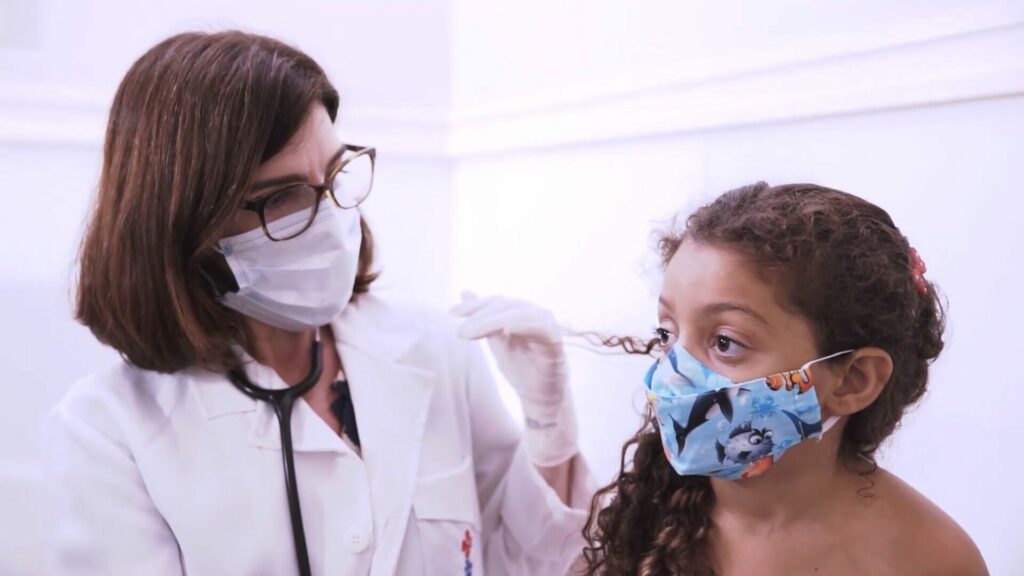
Quality of life in heart disease
06/29/2022
Cardiac malformations are considered one of the most common forms of congenital anomaly at birth. The incidence is about 1 in every 100 live newborns. Clinical manifestations vary according to the pathology and its severity.
The detection of cardiac malformations in the prenatal period has contributed to the increase in incidence, both in national and international studies. In Brazil, studies show the number of 25.7 thousand new cases per year.
Advances in surgical techniques and early diagnosis have enabled greater survival and improved quality of life for these patients.
Assessment of the quality of life of children and adolescents with congenital heart disease and the impact of the disease on society provides complementary information that can assist in clinical management by health professionals.
Although we have already found studies on the impact of congenital heart disease, we still need to learn a lot. There are many variables that involve this population and it is important to systematize knowledge on this topic.
In childhood, there is evidence that the presence of congenital heart diseases can affect height, motor, cognitive and neurological development, which can be even more pronounced in complex heart diseases. Changes in behavior, attention deficit and hyperactivity may be observed. Furthermore, the use of regular medication and recurrent hospitalizations can affect self-esteem, impacting the psychology of these children and adolescents. Maintaining health requires care from a multidisciplinary team.
Adolescents with heart disease must receive special attention, as at this stage they begin to have autonomy and need to understand the importance of cardiological monitoring and the use of medications, in addition to the need to maintain healthy habits. They must also be guided in relation to physical exercise, entry into the job market, and pregnancy and contraception.
Therefore, health care for patients with congenital heart disease must include care for their social and psychological needs as well as physiological ones, as a means of improving well-being and satisfaction with life.
Another fact is that the vast majority of publications take into account the perception of parents and/or caregivers, including the multidisciplinary team, and not the child. However, we have already seen that listening to and understanding the manifestations and valuing their experiences is essential. The report from the entire family, including siblings, also helps us to better understand what the pathology represents for everyone involved. Frequent and/or prolonged hospitalizations and travel to large centers where specialized care takes place can cause family breakdown. We also cannot forget the impact on the professional lives of mothers, who in some situations are forced to leave their jobs.
The family’s socioeconomic situation is another factor that must be observed, as not all families have the necessary resources for monitoring and treatment.
Pro Criança Cardiac focuses on caring for underprivileged children and adolescents with heart disease. With a multidisciplinary team of pediatric cardiologists, dentists, nutritionists, social workers, educators and psychologists, it ensures the appropriate management and treatment of patients. It offers medicines, basic food baskets, diapers and milk. Invasive procedures, laboratory and imaging tests are carried out at partner institutions, at no cost to families.
As a health institution, we have the role of contributing more and more to improving the quality of life of our patients and their families, through assistance actions.
by Dr. Isabela Rangel, Medical Director of Pro Criança
Quality of life in heart disease
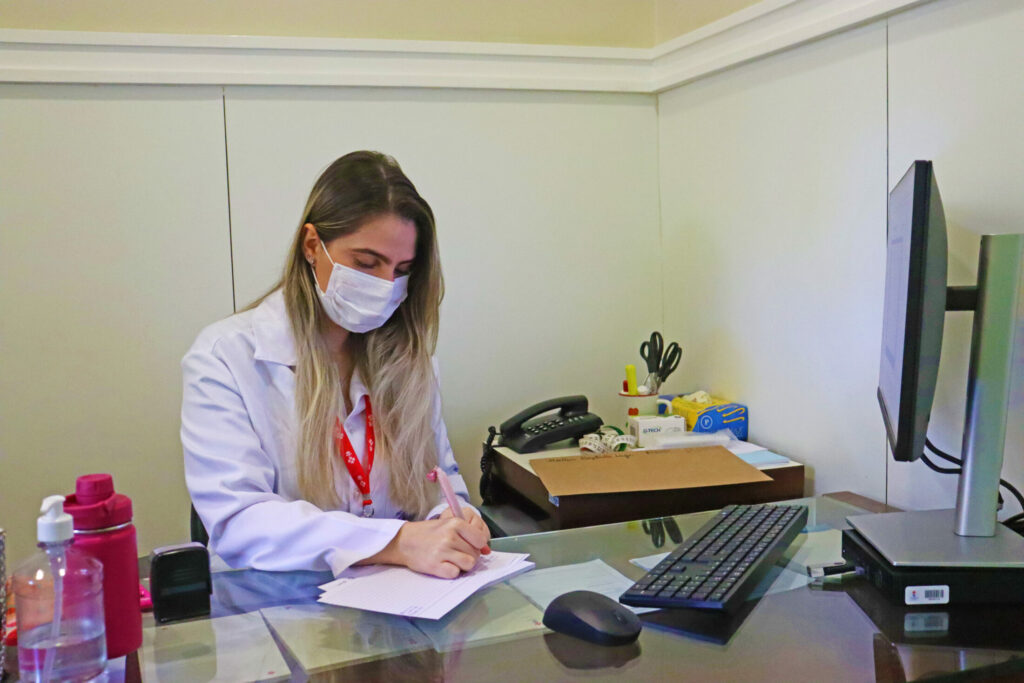
Child nutrition tips
03/31/2022
Today, March 31st, World Health and Nutrition Day, we made a selection of super useful and specific tips for children, shared by our Carolina Maaloouf, nutritionist at Pro Criança Cardiac. We love following the posts and highly recommend them to families.
Enjoy!
Is eating routine important?
For sure. Routine is fundamental to a child’s development in several areas, including when we talk about nutrition. When this routine is followed by the whole family, it becomes even more effective.
The child must be used to having regular breaks between meals. Furthermore, it is important not to offer “snacks” during these intervals so that they do not interfere with the appetite when eating. Of course, we are not talking about rigid schedules without exceptions. The guidance is valid for everyday life.
Also remember that there will be times when the child will be less hungry, perhaps a little uncomfortable or have other symptoms that will interfere with their eating routine. And that’s okay. It is also important to know how to understand little ones and respect the signals they transmit to us.
Eating while watching TV or tablet. He can?
It is very common to have a television in the kitchen, watch a program at mealtime and eat while watching TV. But how does this affect your children’s relationship with food?
Many children today are born glued to their screens, be it TV or cell phones. However, eating together with the screen disconnects the child from family time and eating.
The distraction of digital devices disrupts the perception of hunger and satiety, prevents us from paying attention to textures and flavors and also takes the focus off chewing. The answer is to limit the use of screens from an early age and exclude them at meal times.
Encourage your children’s relationship with food, let them choose at the market, cook with them and let them touch the food. The important thing is to be able to connect with eating time.
What snacks should your child NOT take to school?
Do you need to prepare something for snack time at school and don’t have time to invest in a healthy option? Believe me, investing in industrialized snacks will give you a lot more work in the long run.
When your child gets used to ultra-processed foods, their eating habits will be based on a palate that needs a lot of sugar, sodium and fat, meaning they will become much more selective. Furthermore, the consumption of these foods causes diseases, such as excess weight, hypertension, cholesterol and diabetes.⠀
Let’s agree, when packing a lunch box, to avoid:
– Refrigerator;
– Box of juice;
– Bisnaguinha;
– Stuffed cookie;
– Industrialized dumplings;
– Chips;
– Bullets.
How about adapting it to natural sandwiches, homemade cupcakes, homemade juices and fruits?
Taking control of your eating habits again is possible and, little by little, we can introduce new, healthier foods to achieve this goal. Taking a little time out of your day to take care of your child’s health can save a lot of time in the future.
Repeat after me: quality is better than quantity
Your child knows how much to eat! Trust that he will be hungry and interested in food, but remember to only give him what is good quality. There’s no point in offering processed foods or snacks that you know he’ll accept in large quantities. This will disrupt your eating habits in the short and long term.⠀
It’s better to worry about quality, and then quantity will be fine! Let’s take care that in the future, what pleases his taste is what is good for his health.
⠀
The role of parents is not to determine portion sizes and when to stop eating. But, yes, provide quality food for your children. Therefore, encourage your child to try different foods, interact with them during the meal and, above all, set an example by eating close to them.
If you manage to create good eating habits with your child, he will grow up having a good relationship with food. This will make him less likely to gain excess weight or develop eating disorders.
Taking care of a child’s nutrition is not an easy task, so ask a maternal and child nutritionist for help!
Child nutrition tips
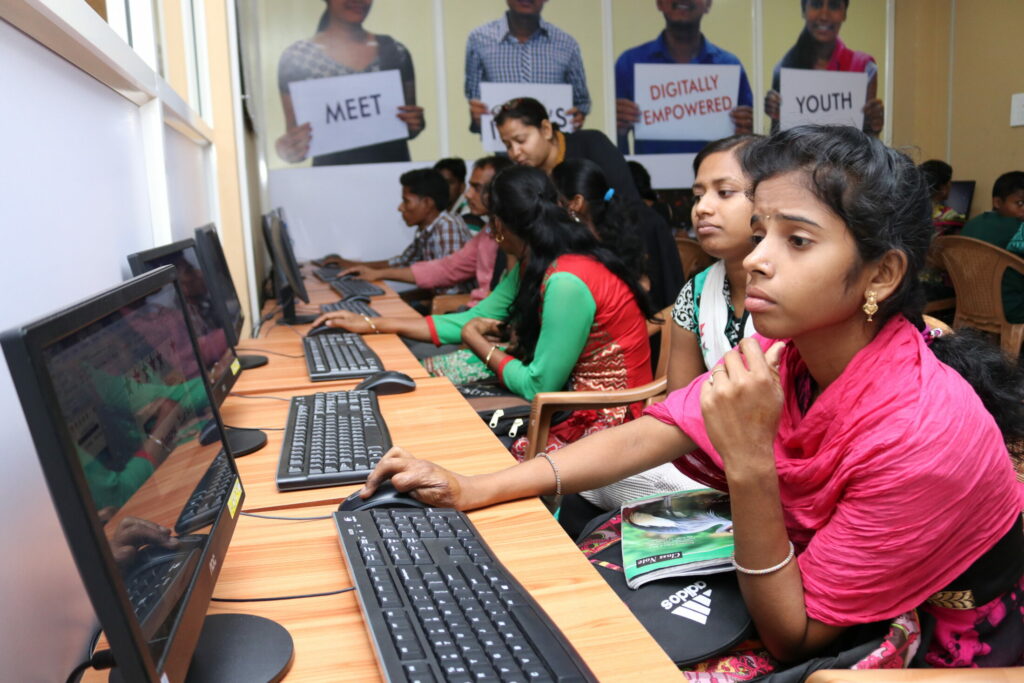
Over 50% of Newly Graduated Students in India Remain at Low Employability Level: Should We Panic or Fight Back?
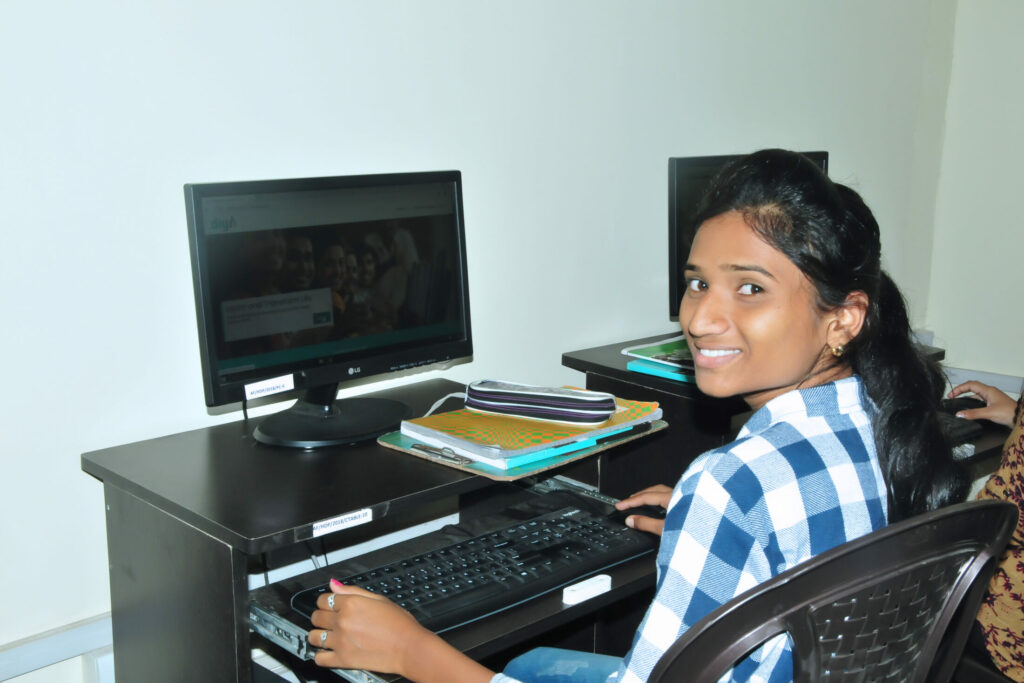
The list of Official Contenders for the 2023 rankings will begin to appear by December 1st, 2022. Time to join and update profile.
Time to Join the 2023 Contests: Become a Top SGO List’s Official Contender
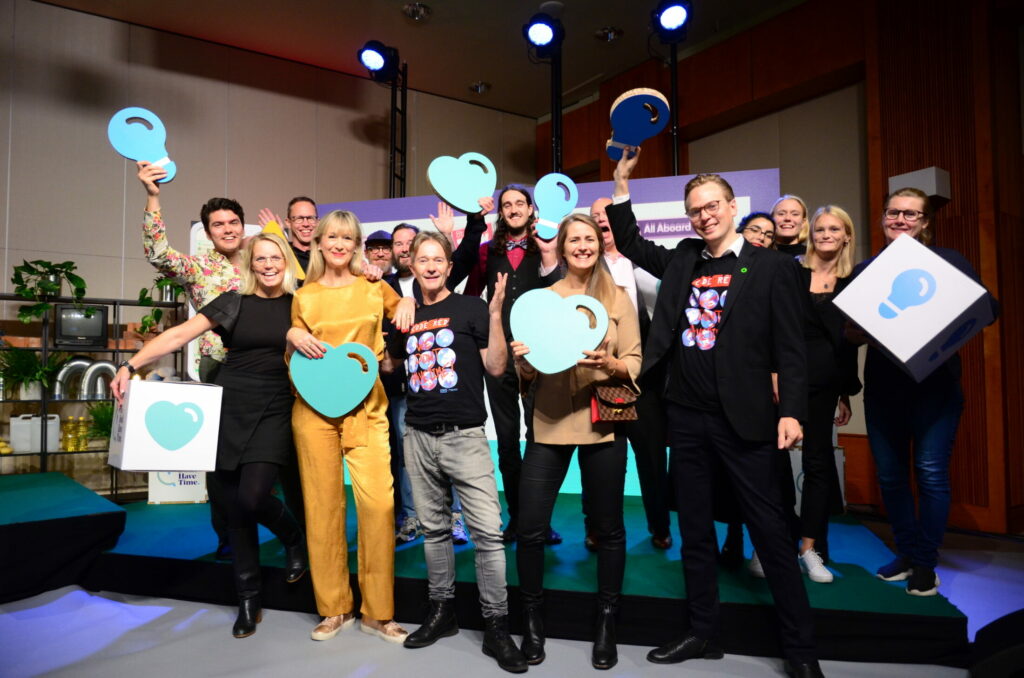
10 Years Scouting the Social Good Sphere: Celebrating a Journey Toward a Better Future

In 2022, the USA 100 SGOs and the BRAZIL 25 SGOs are paving the way for more in 2023.
Top 100 USA & Top 25 Brazil: thedotgood Introduces Two New Listings

From NGO Advisor to thedotgood: A Spin Full of Joy and Meaning

Considering Our New Brand and Logo, There is More to That ‘Dot’ Than Meets the Eye.
Oh My [dot] good! Why We Love our New Dot and the Story Behind it
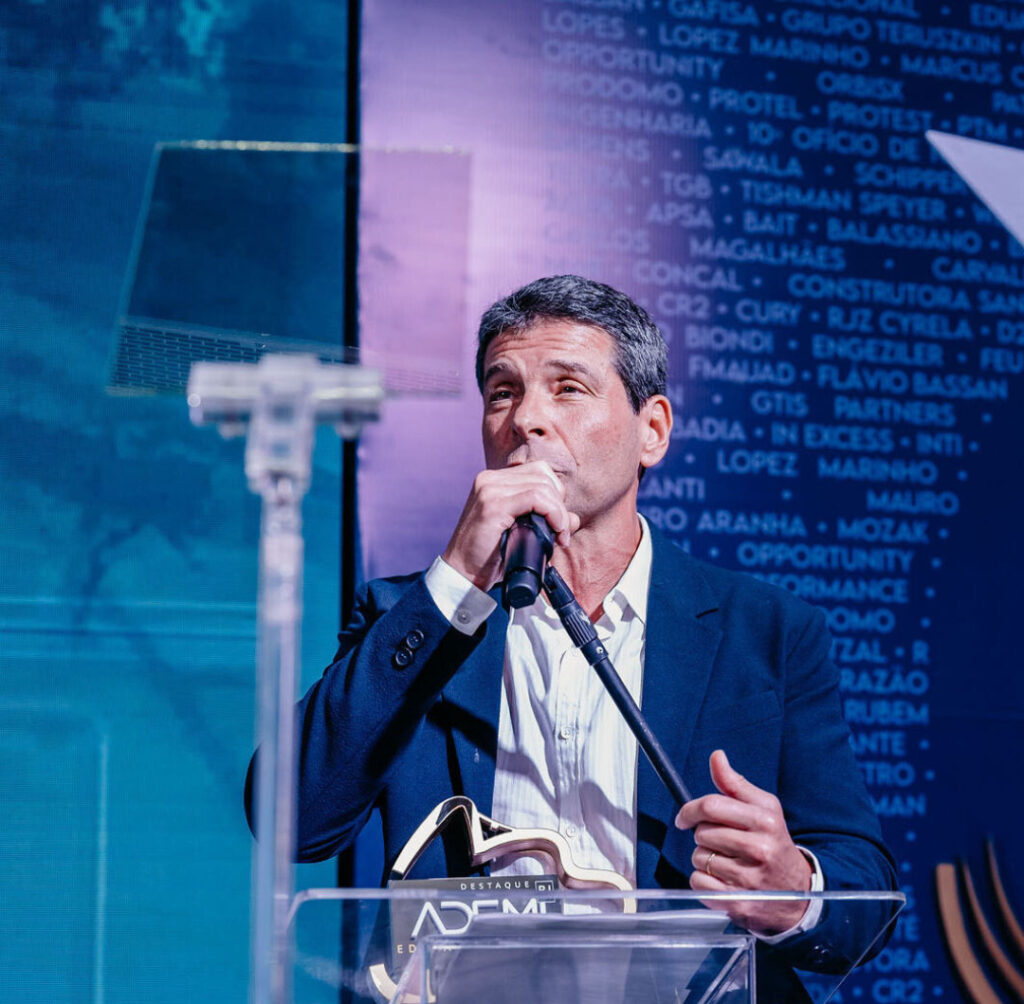
Talking to Pedro Werneck, a Social Entrepreneur With 35 Years of Experience and the President of the Instituto da Criança
"We Seek to Build a Culture That Transforms Human Lives, a Culture of Solidarity"

An Open Conversation With YCAB’s Founder and CEO, Veronica Colondam
"What Will Happen in the Future as We incubate Mission Aligned Businesses, Knowing the Danger of Losing the Balance"
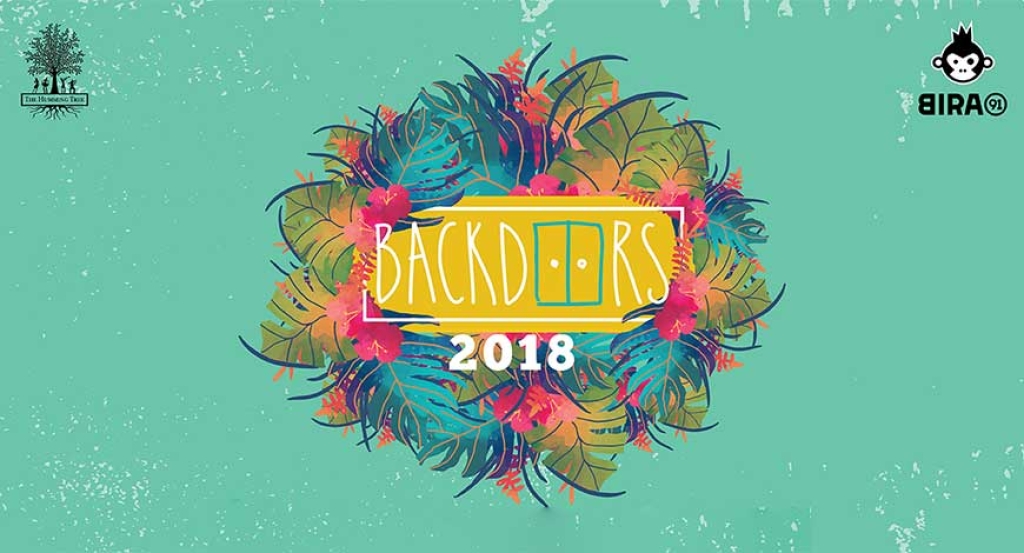
Launching a Successful Online Violence Against Women campaign: a Few Take-Away From Amnesty India
"Backdoors is an Opportunity to Inspire People to Take Action to End Online Violence Against Women"
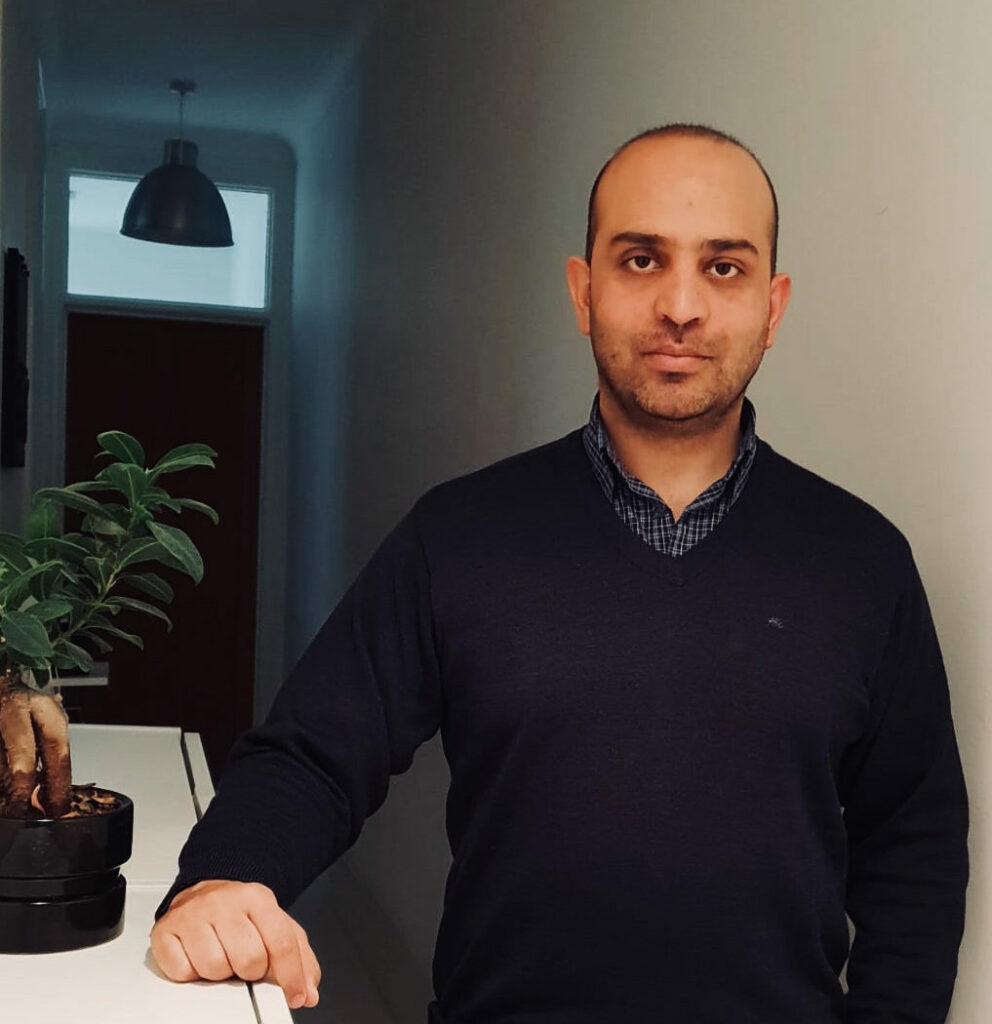
Himalyan People SGO’s Director, Anuj Kapoor, Believes Blockchain Can Bring Good to the People of the Himalayas
"Blockchain Offers to Producers of Himalayan Teas to Establish Their Authenticity to World Customers"
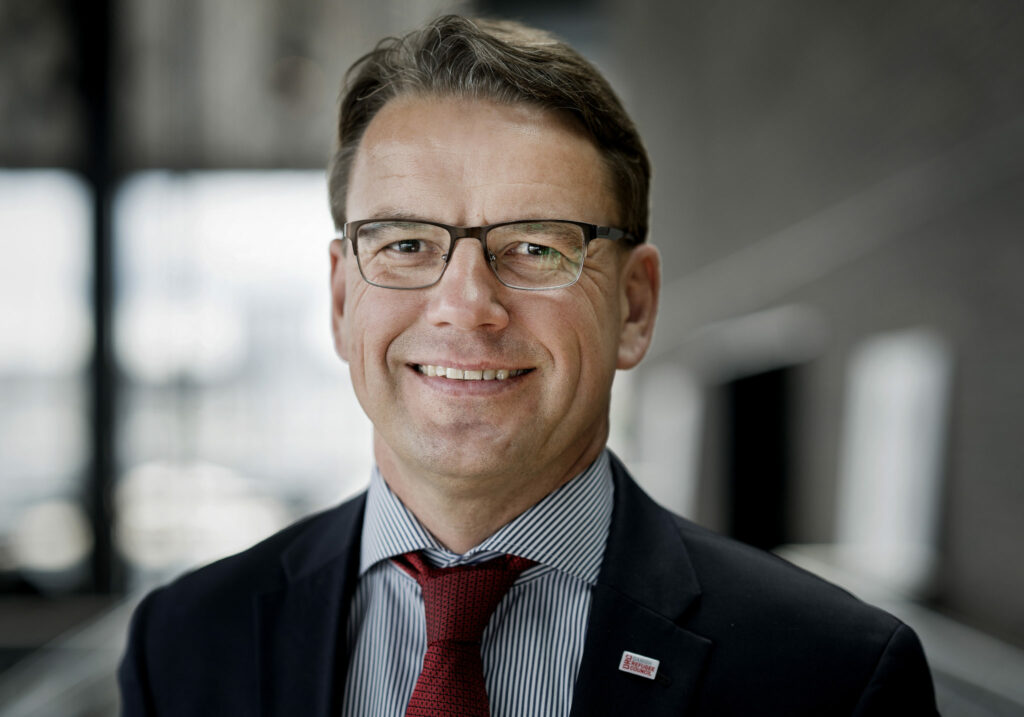
Christian Friis Bach, Danish Refugee Council’s [former] Top Executive Reflects on Digitization and Its Impact on Operations
“We Took a Big Leap Forward to Integrate Digitalization: It Will Make a Difference to People in Need”
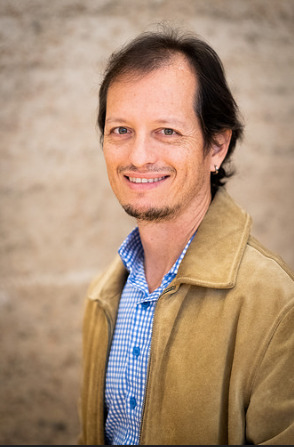
SITAWI’s CEO, Leonardo Letelier, a Brilliant Mind of the Brazilian Social Good Sphere With a Triple Bottom Line.
"We Witness Opportunity for Growth if We Look at the Nonprofit Sector as an Economic Sector"
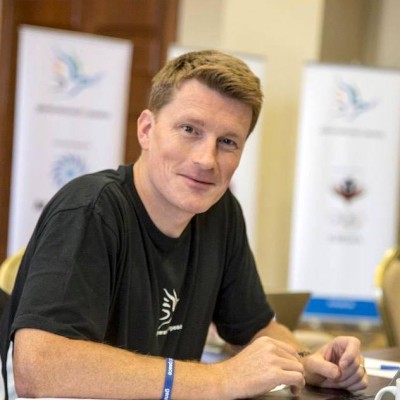
Generations For Peace’s CEO, Mark Clark, Reflects on the Constant Nurturing of his Organization
"We’ve Gone Through Proof of Concept in Very Diverse Conflict Contexts"

For Winning the Game, Join the Conversation With Simon Prahm, GAME’s CEO
"We Are Currently Working on Developing a Street Sports Incubator In Jordan With Jordan Youth Innovation Forum"
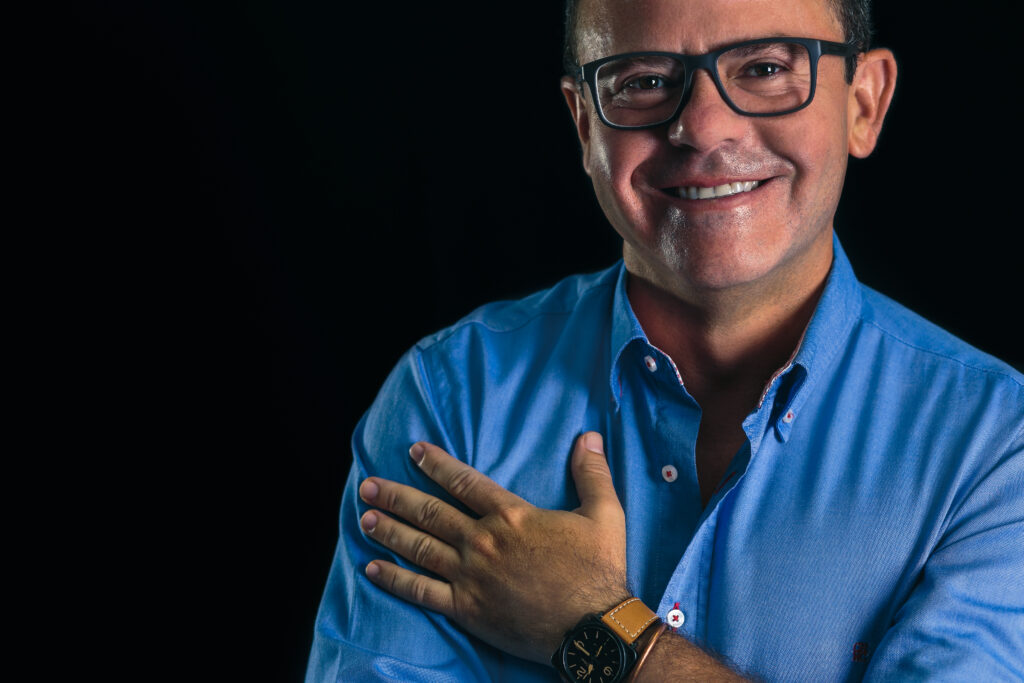
With the Brazilian Non-Profit Sector Facing Difficult Times, CIEDS’ CEO, Vandré Brilhante, doubles down on Education
"Brazil is at Risk, as a Whole Generation is Being Educated in a Poor and Unfair Way"
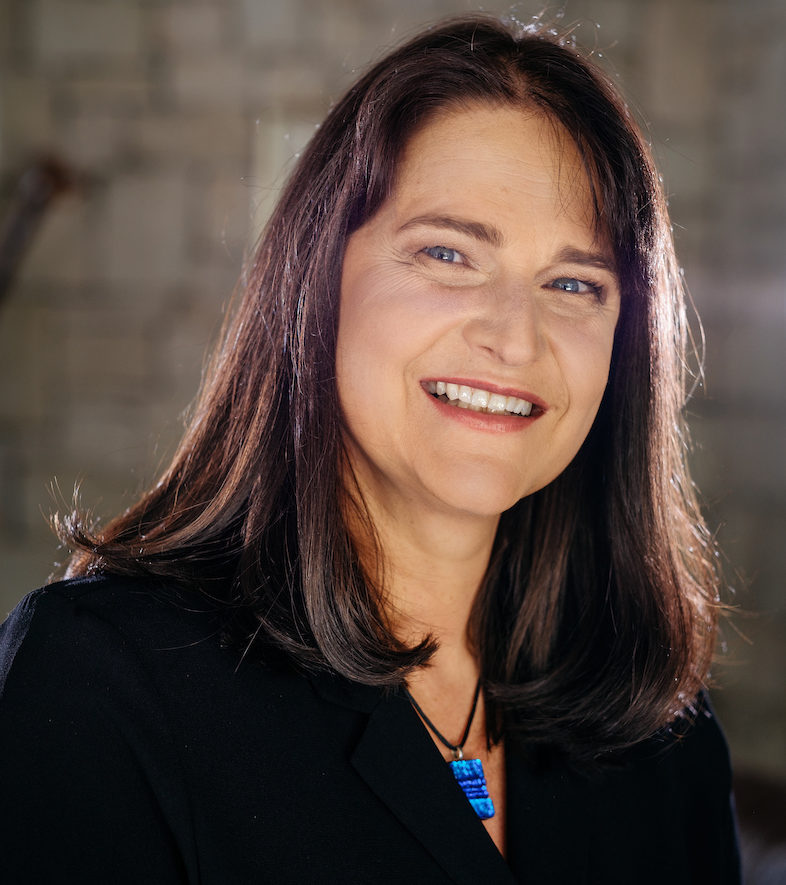
Scaling? Replicating? Let’s Ask Louise Van Rhyn, Symphonia for South Africa’s CEO
"We See the Opportunity for This Model to be Replicated in Other Spheres"
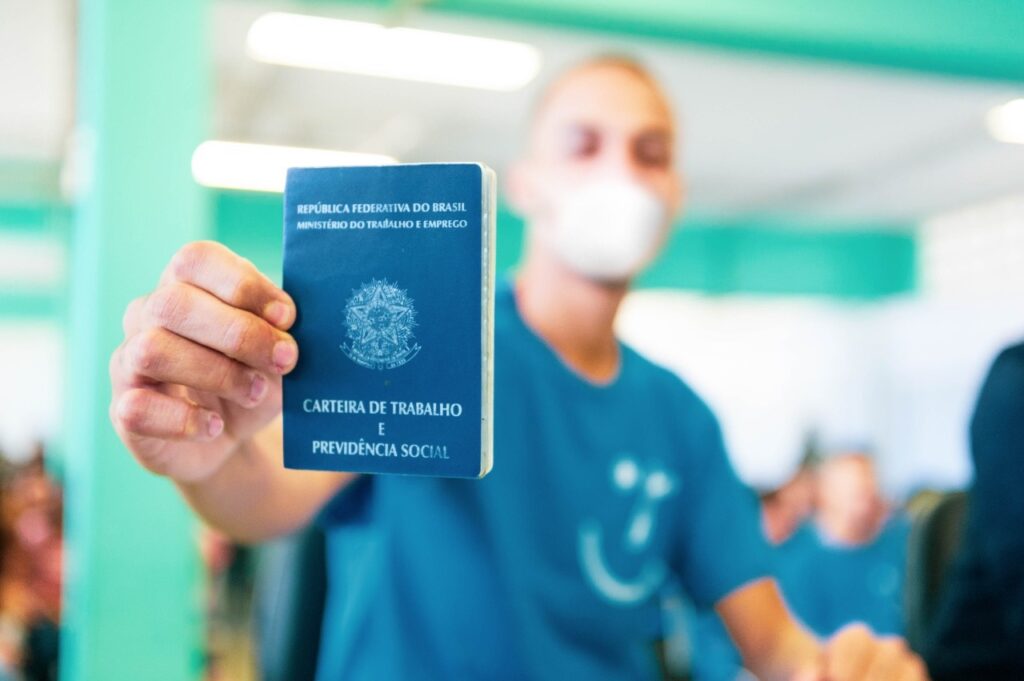
The Brazilian Social Good Sphere is at risk, says Fernando Alves, CEO of the Citizen Network
"Brazilian Private Sector Has Paused Its Social Investment"

A Founding Father of the Social Good Sphere, BRAC Founder and CEO, Sir Fazle, Continues to Think Bold.
"The Idea Behind BRAC is to Change Systems of Inequity"

Thomas Davies, a Lecturer in International Politics at City University London, Studies the Evolution of International NGOs
Non-Governmental Organizations: A Long and Turbulent History

African-American Voices are Playing a Major Role in Ending the Death Penalty in the U.S. Writes Laura Porter
"Voices of Color Hasten Decline of the Death Penalty"
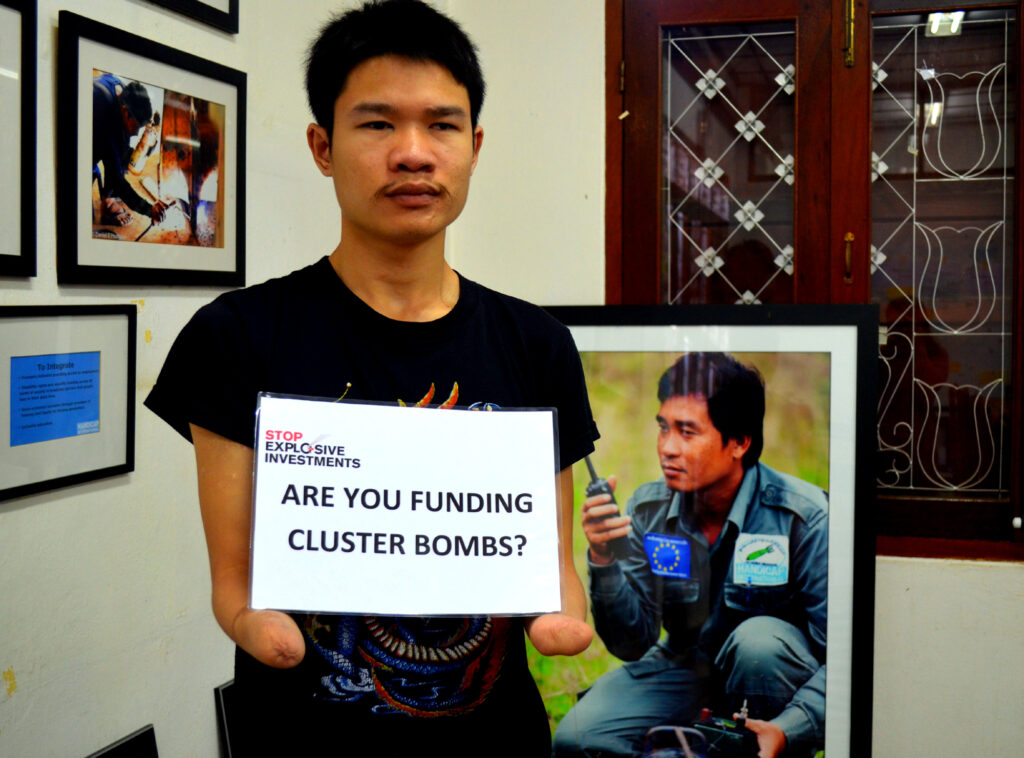
Megan Burke is the Cluster Minution Coalition’s Director
Growing Investment in Cluster Munitions Despite International Bans Against Use

Jessica Doyle is a Postdoctoral Research Associate in the Transitional Justice Institute at Ulster University.
Between Control and Co-Option: The Future of Civil Society in Erdoğan’s Turkey
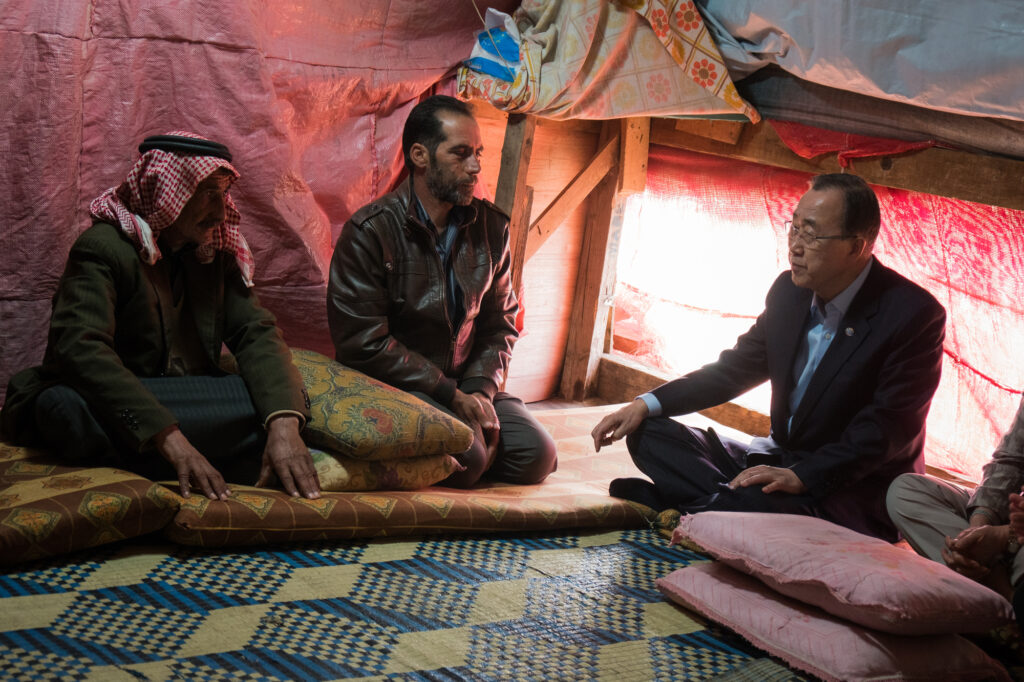
The World Humanitarian Summit is to Take Place in Istanbul. Mercy Corps’ CEO Counts More and More Conflicts
"The World is on Fire"

An interview with KYM’s CEO, Ayşe Özkalay, a few months before her Turkish SGO was taken down by Erdogan’s regime.
"I Want to Maintain Hope in the World Humanitarian Summit"

Tris Lumley is the Director of Innovation and Development at New Philanthropy Capital